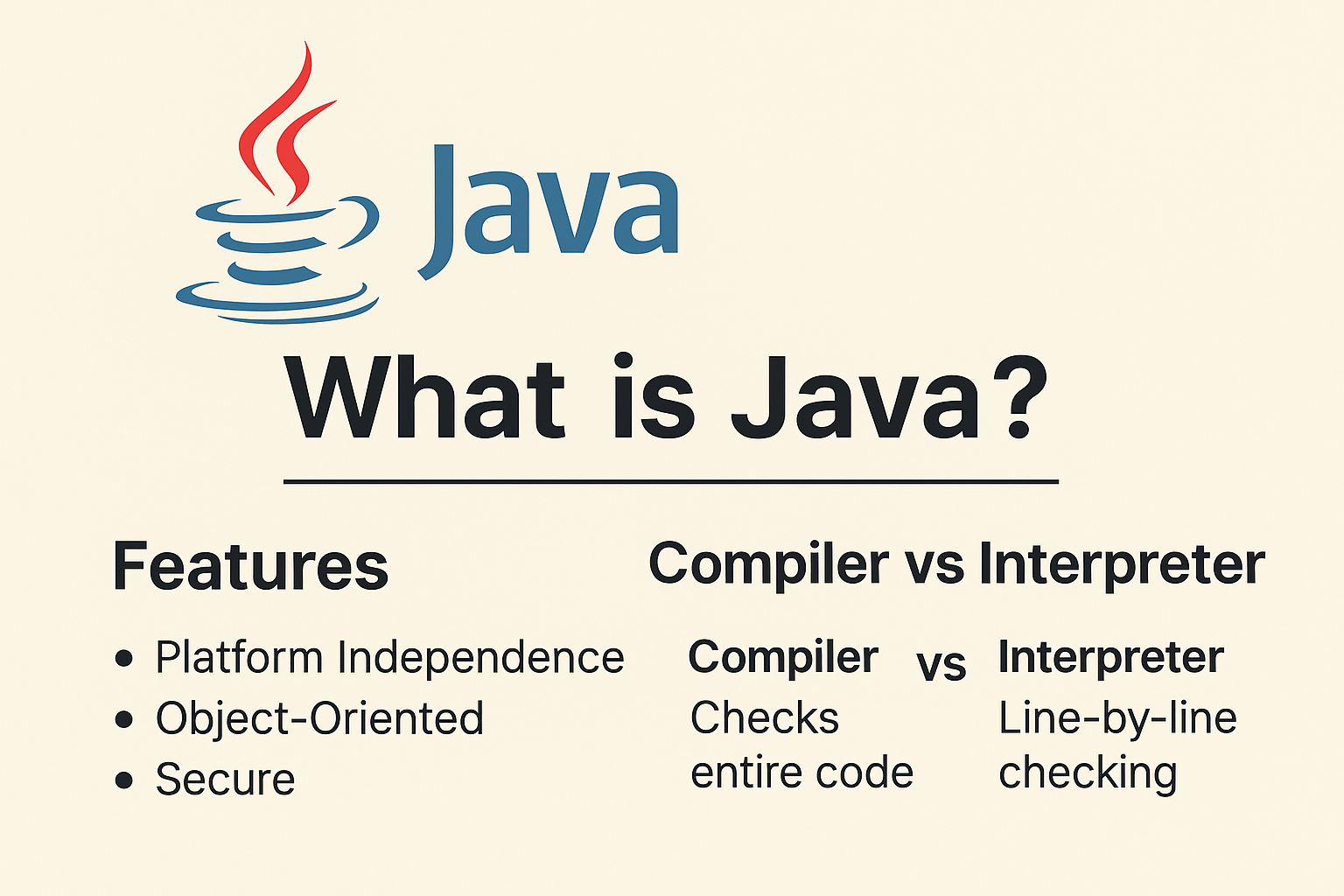
What is Java? Features, Compiler vs Interpreter Explained
Learn what Java is, its key features, and how compilers differ from interpreters. Understand platform independence, object-orientation, and more.
Browse the complete Java Fundamentals tutorial series with example-driven, step-by-step guides.

Learn what Java is, its key features, and how compilers differ from interpreters. Understand platform independence, object-orientation, and more.
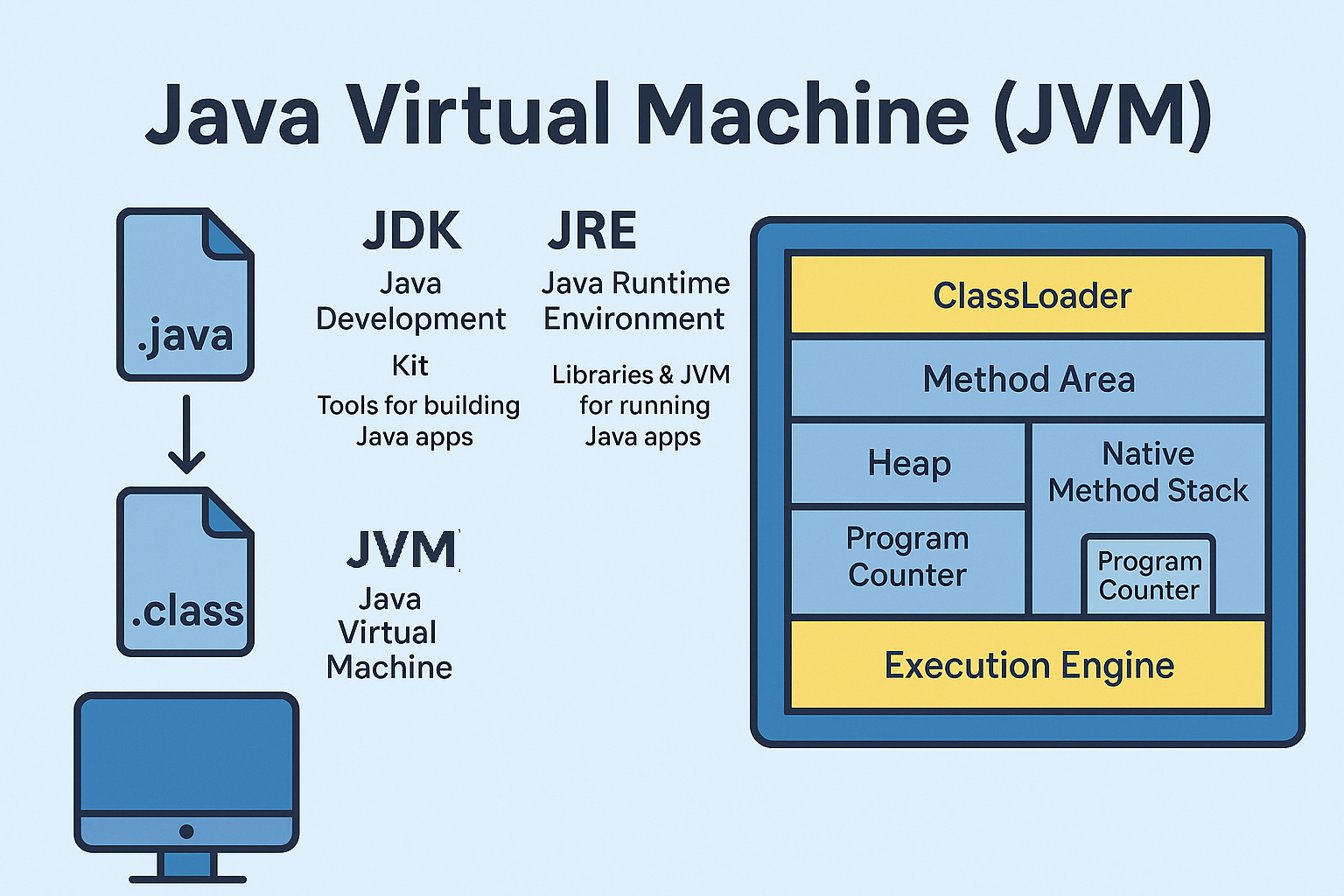
Understand what JVM is, how it works, and its internal architecture. Learn the difference between JDK, JRE, and JVM with simplified diagrams and questions.
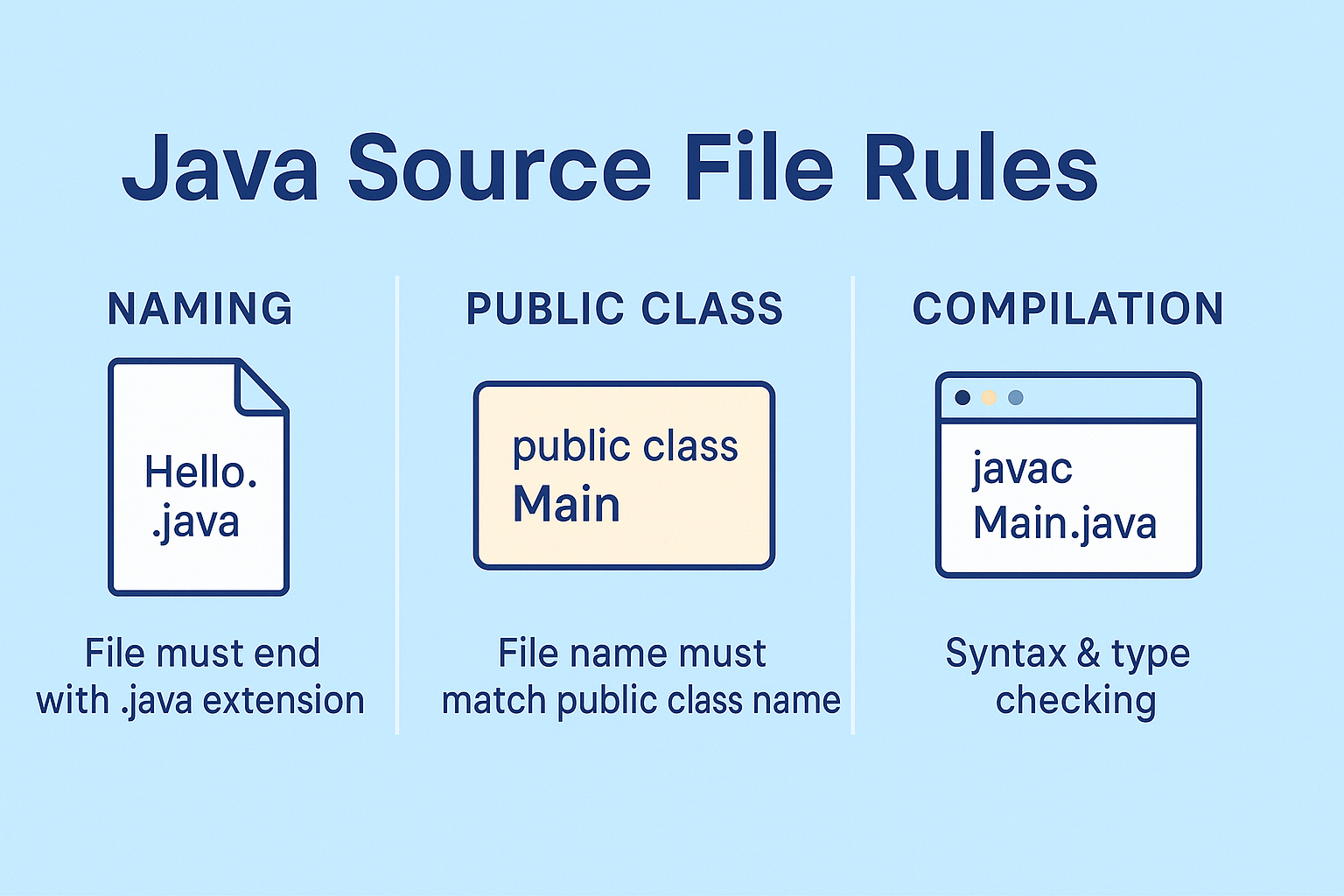
Learn the essential rules for writing Java source files, including file naming conventions, public class restrictions, main method behavior, and how the compiler handles errors.
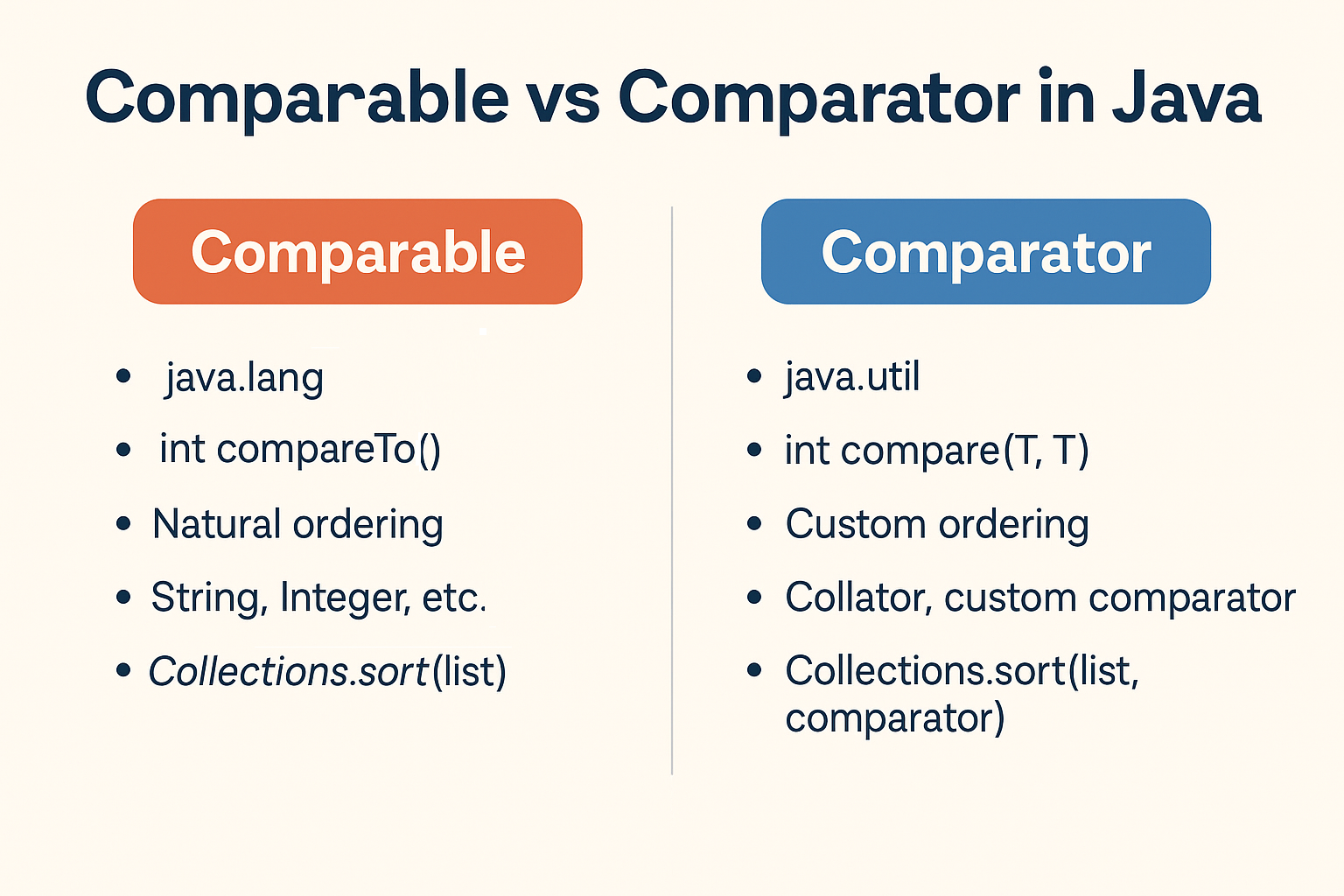
Learn when to use Comparable or Comparator in Java, understand natural vs custom sorting, and see clear code examples with Collections.sort and Stream.sorted.
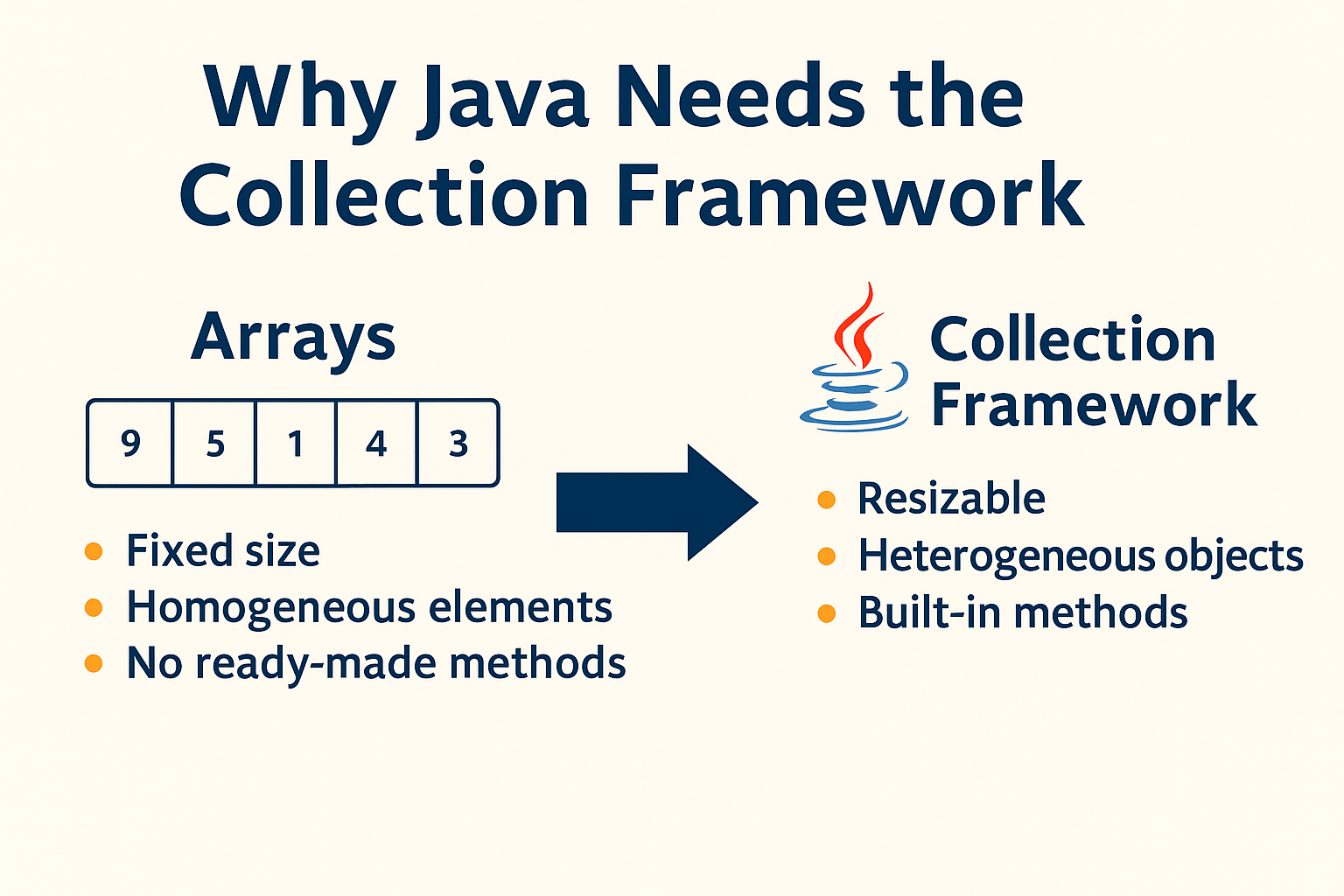
A deep dive into the limitations of Java arrays, the evolution of the Collection Framework, and how Lists, Sets, Queues, and Maps solve real‑world problems with dynamic data handling.
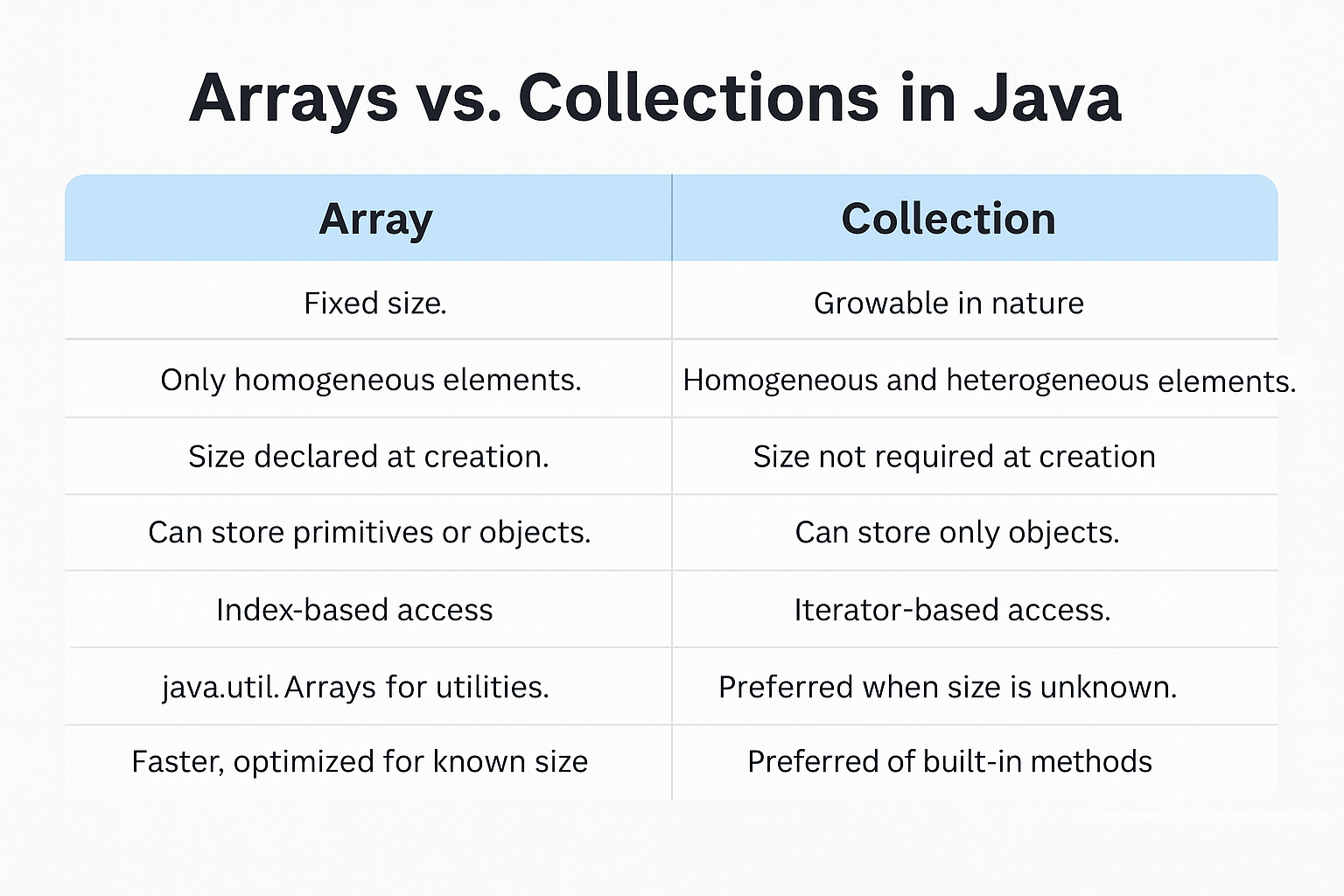
Explore the key differences between Java arrays and the Collection Framework. Learn about sizing, performance, data types, and real‑world use cases with code examples.
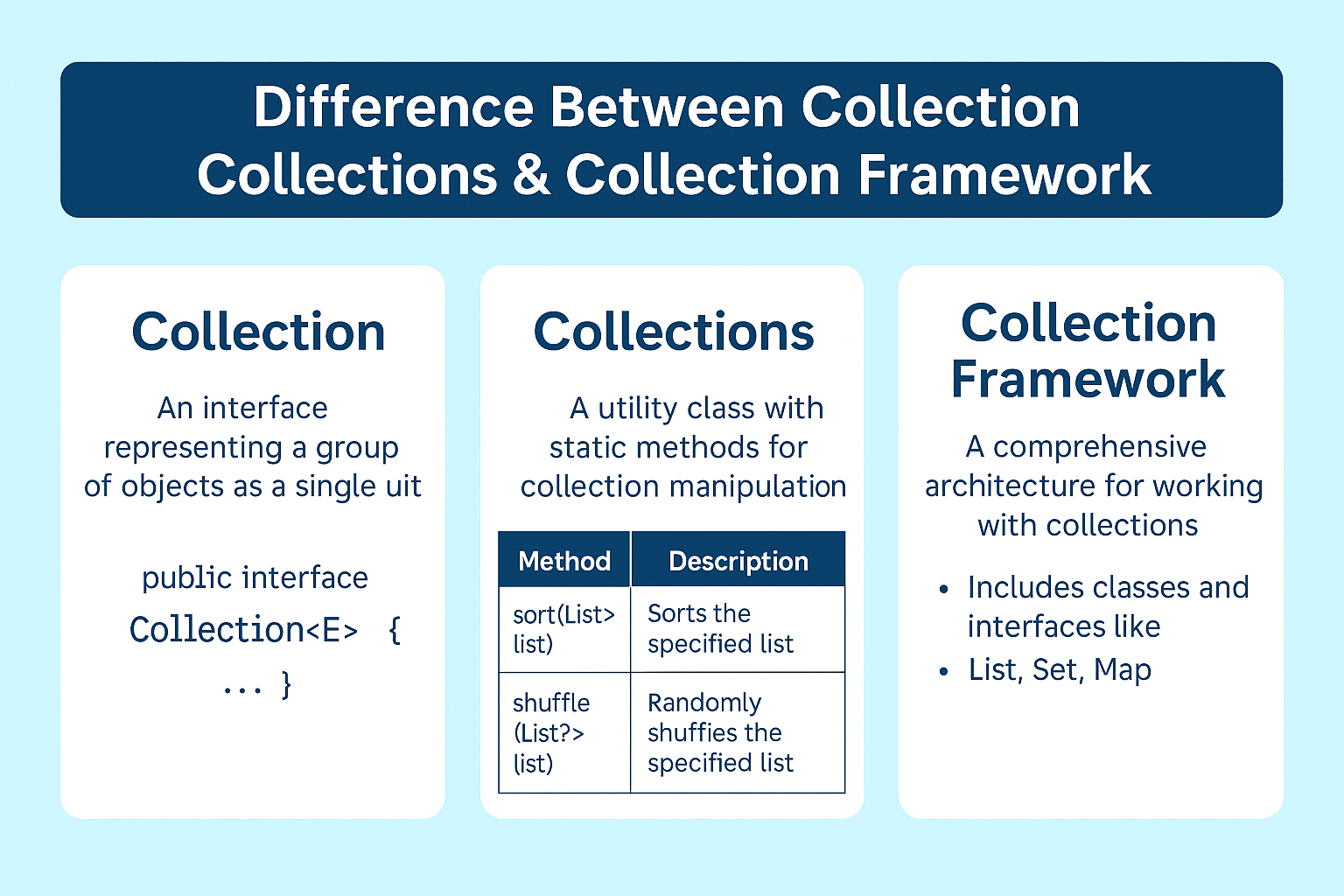
Understand the differences between the Collection interface, the Collections utility class, and the overall Java Collection Framework. Includes code examples, use‑cases, and interview tips.
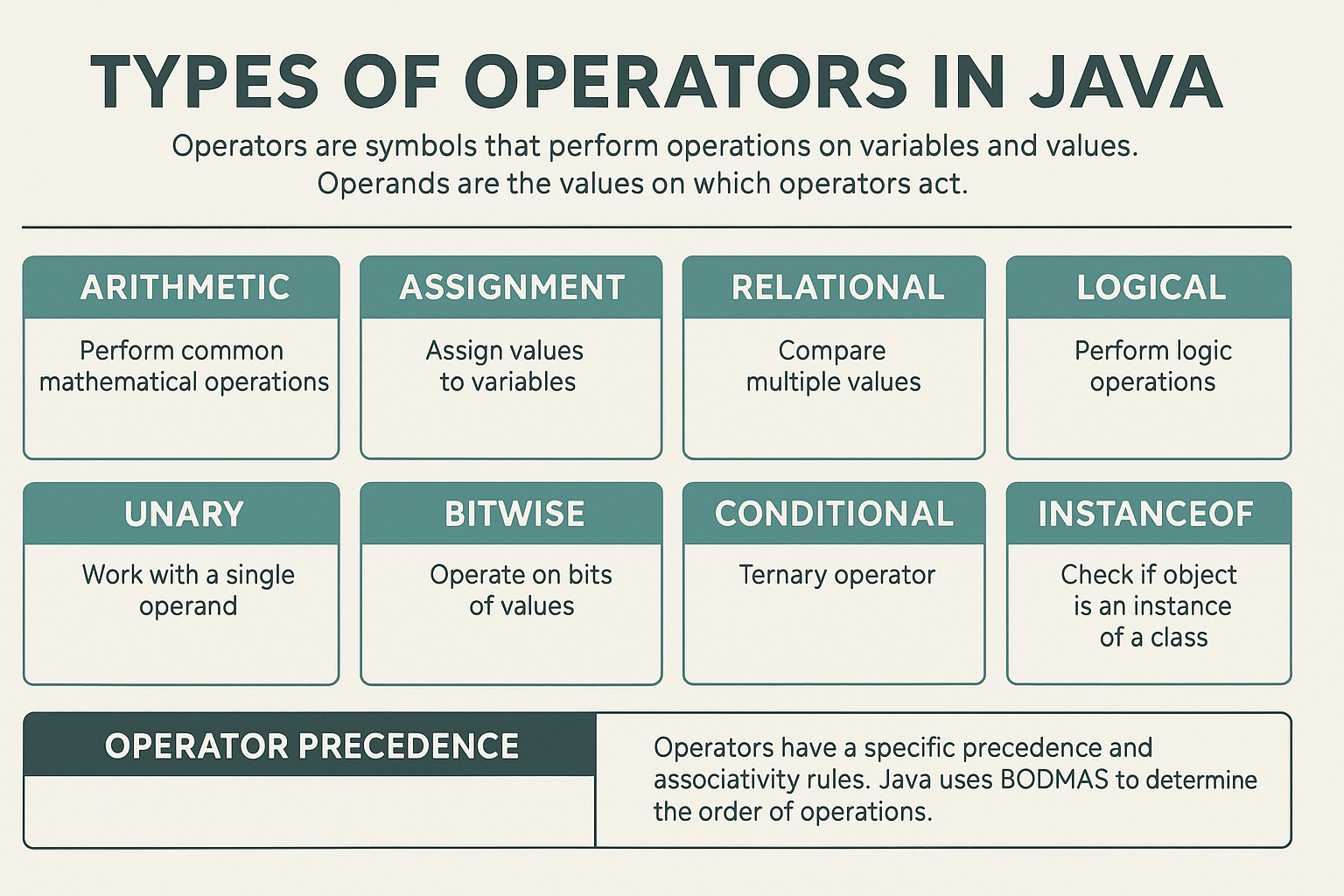
Master Java operators with in-depth explanations, examples, and use-cases. Covers arithmetic, assignment, logical, bitwise, relational, shift, conditional, instanceof, and precedence rules.
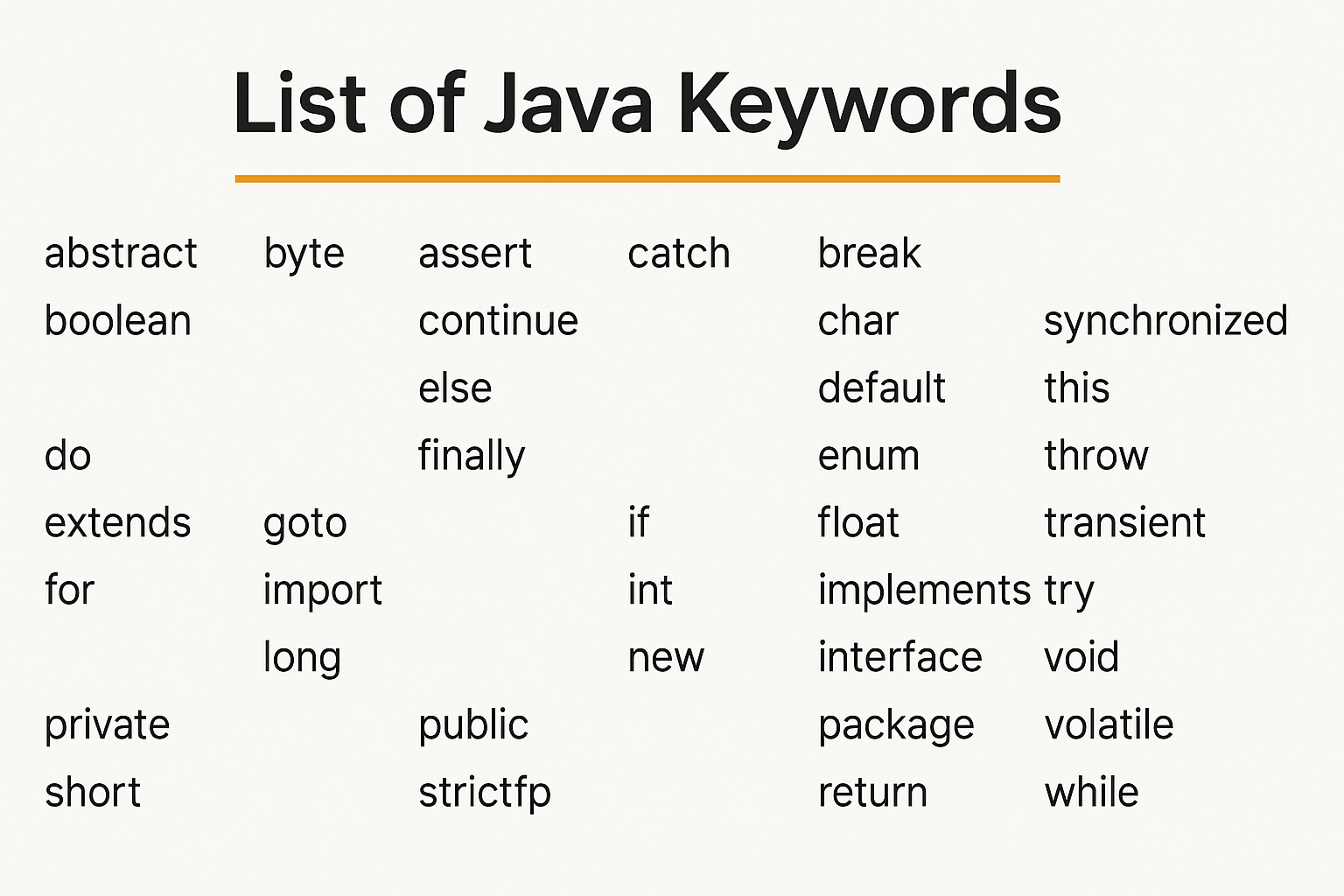
Explore the full list of Java keywords, their purpose, and rules. Understand why reserved words cannot be used as variable names and how the compiler interprets them.
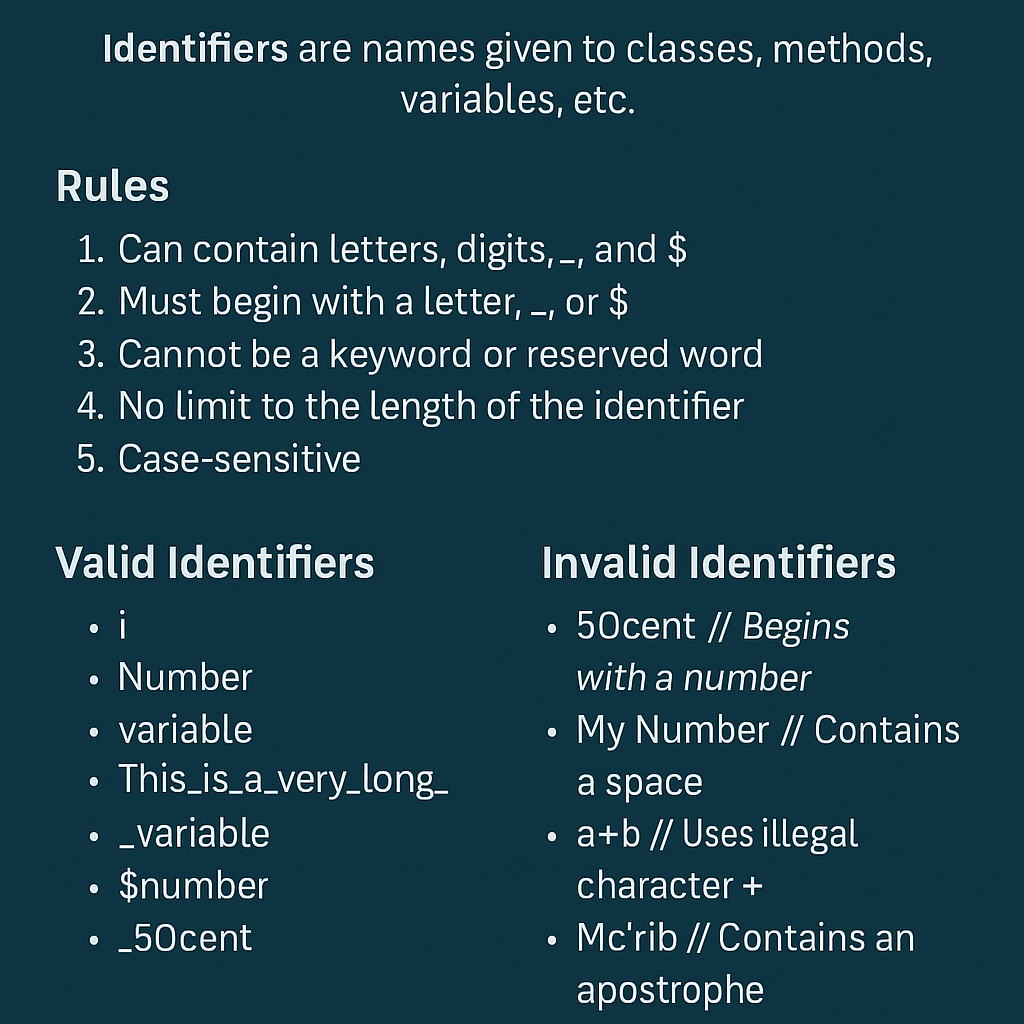
Learn what Java identifiers are, the rules for creating them, and industry-standard naming conventions for variables, methods, classes, and constants.
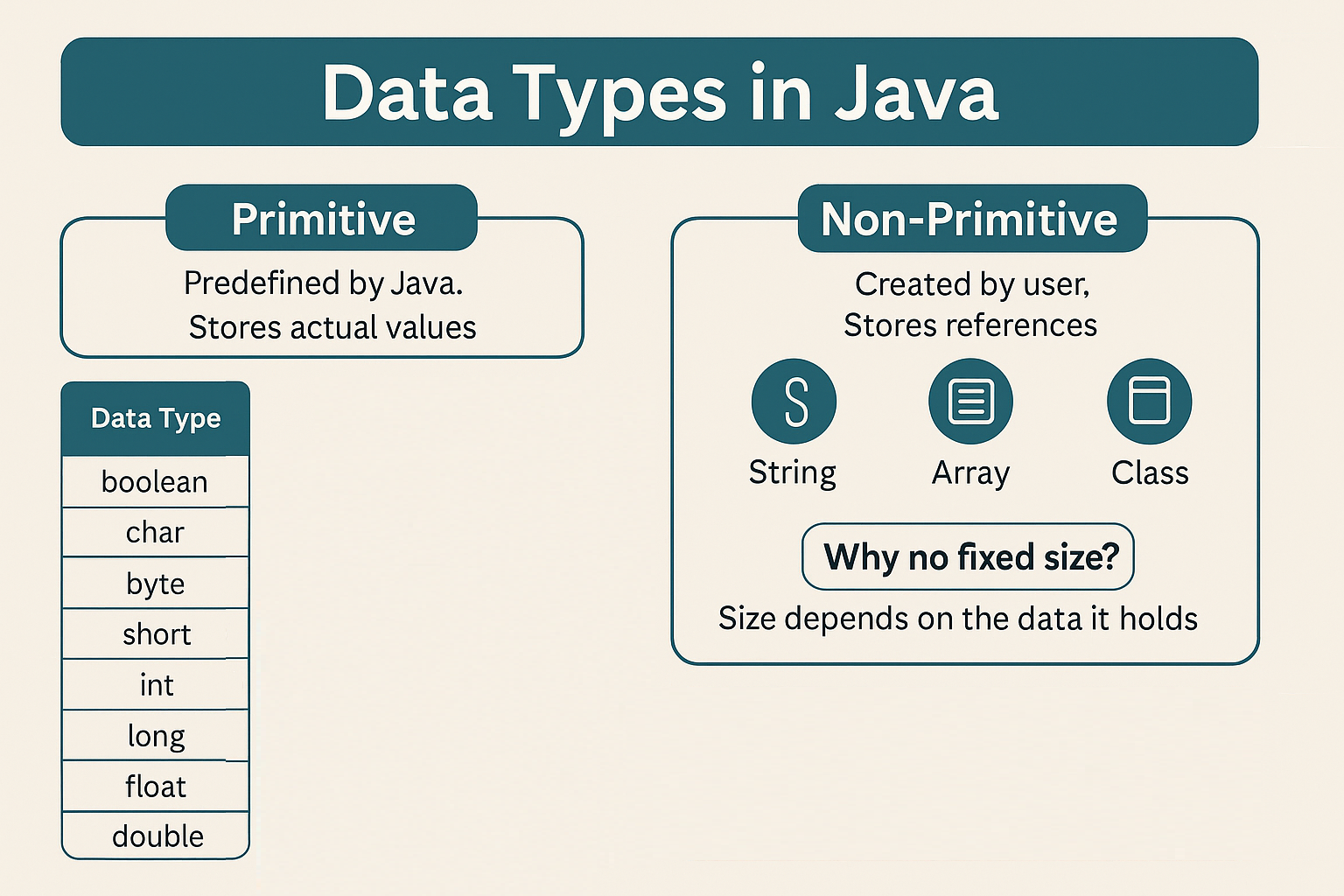
Understand Java data types in depth—learn the memory size, range, default values, and use‑cases of all primitive types as well as strings, arrays, and classes.
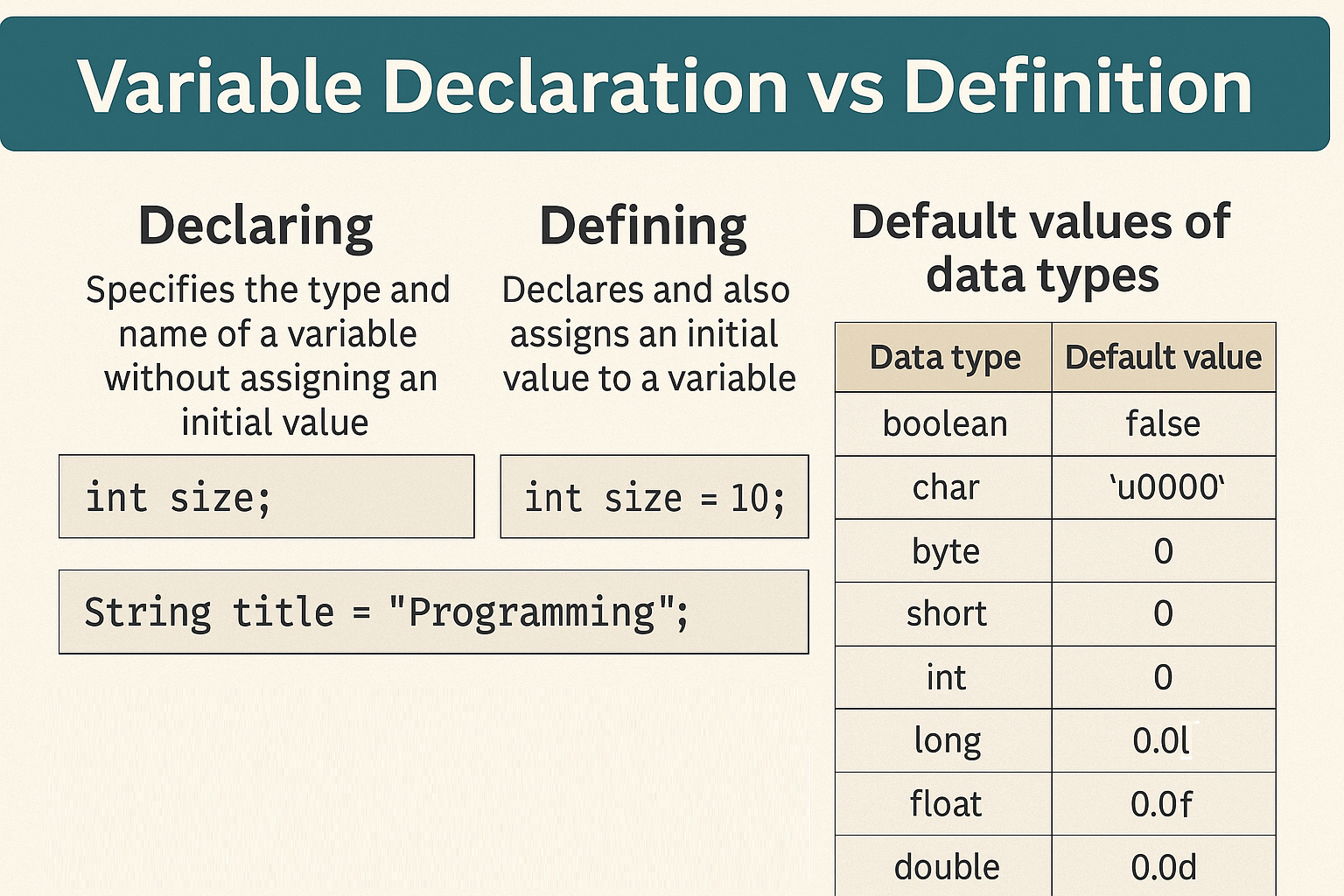
Understand the difference between declaring and defining a variable in Java. Learn how initialization works, when memory is allocated, and the default values assigned to instance variables.
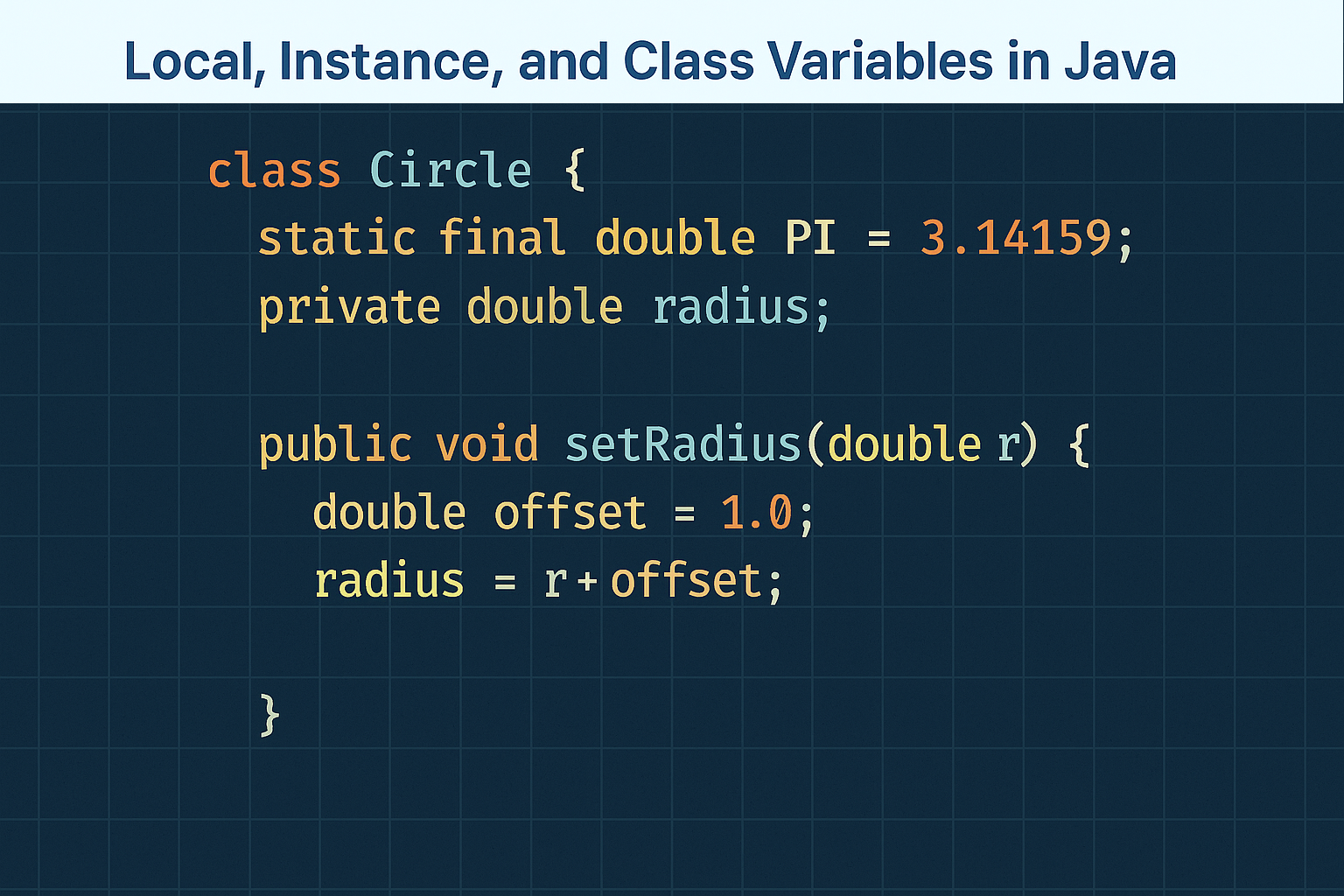
Explore the differences between local, instance, and static variables in Java. Learn how and where they are declared, initialized, accessed, and when to use each type.
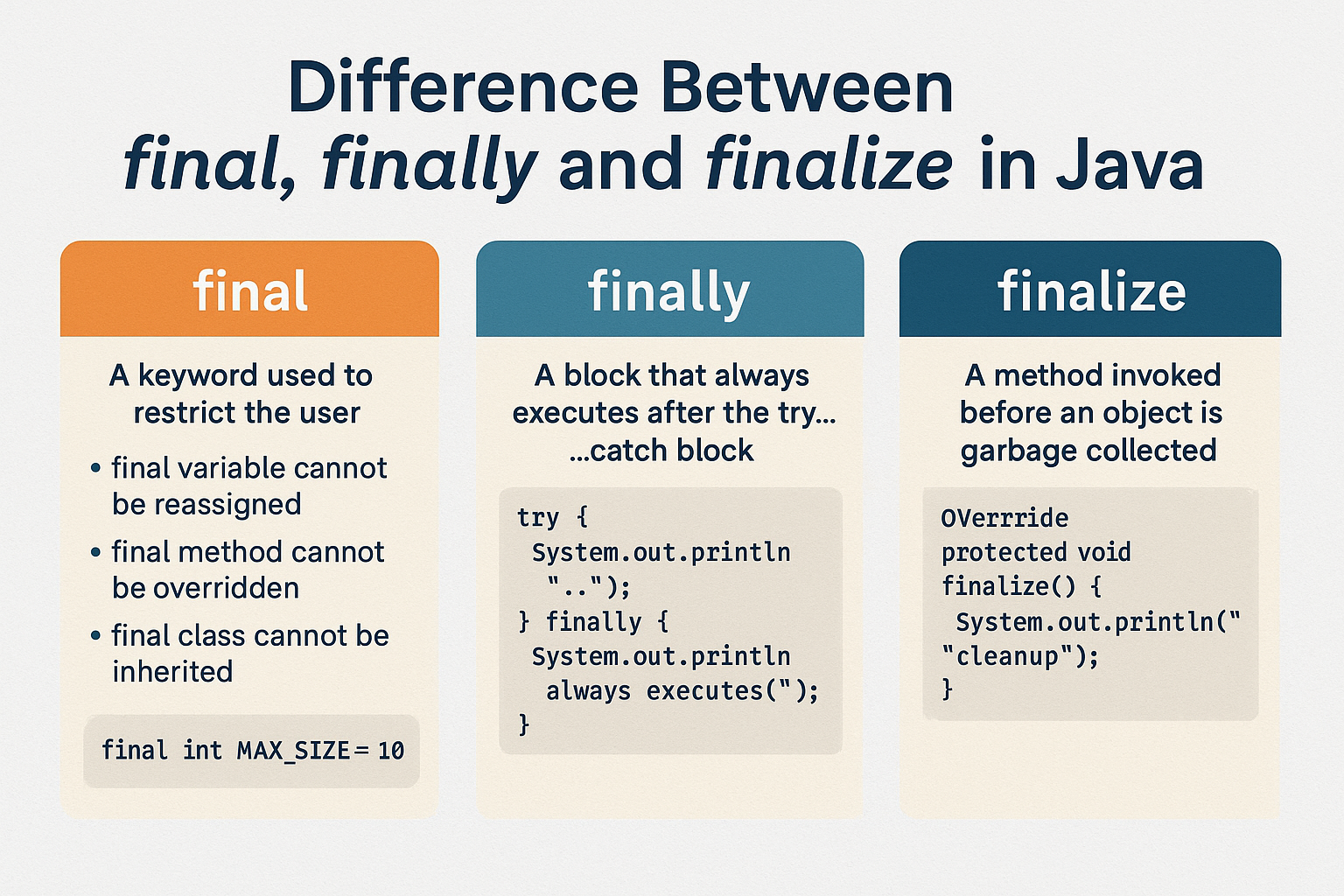
Learn the exact differences between final, finally, and finalize in Java—including keyword usage, exception-handling behavior, and garbage-collection hooks—with clear code examples.
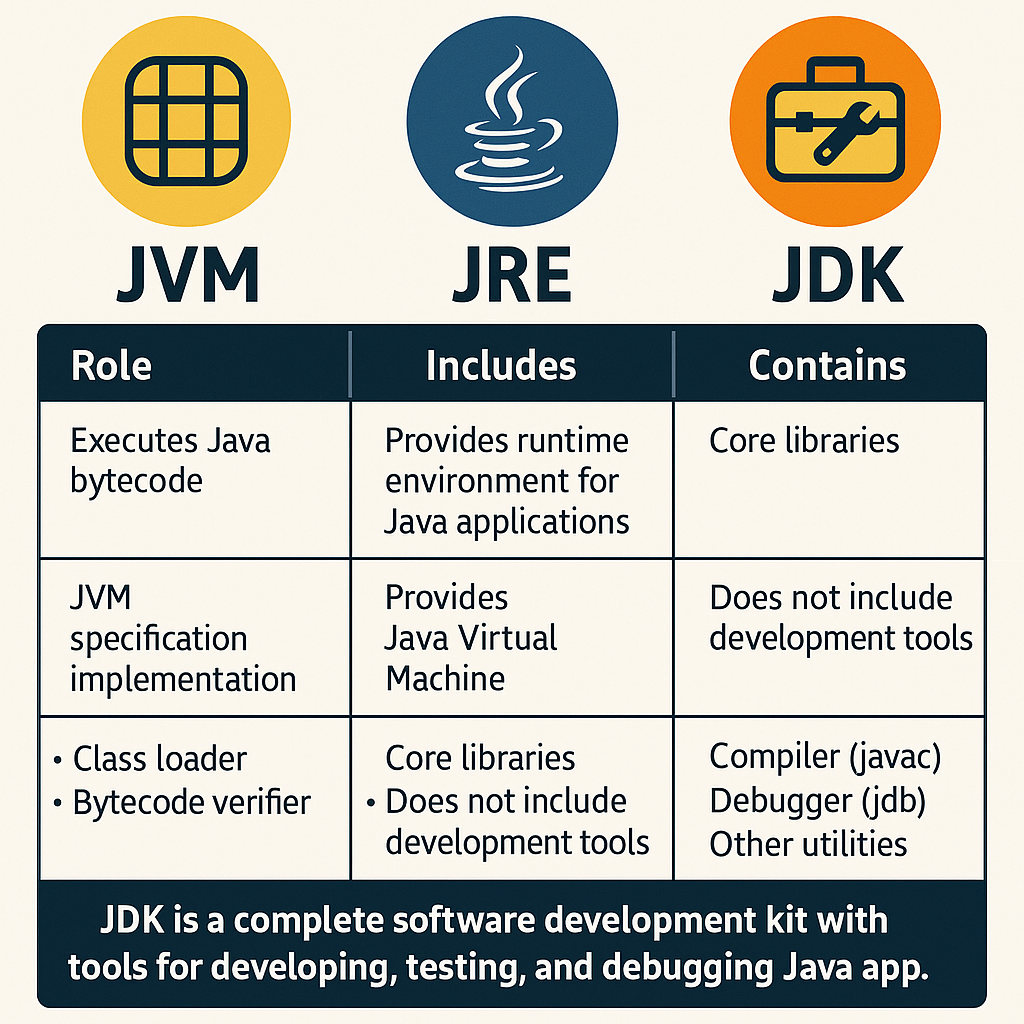
Learn the key differences between JVM, JRE, and JDK in Java. Understand their roles, when to use them, and how they impact your development process.
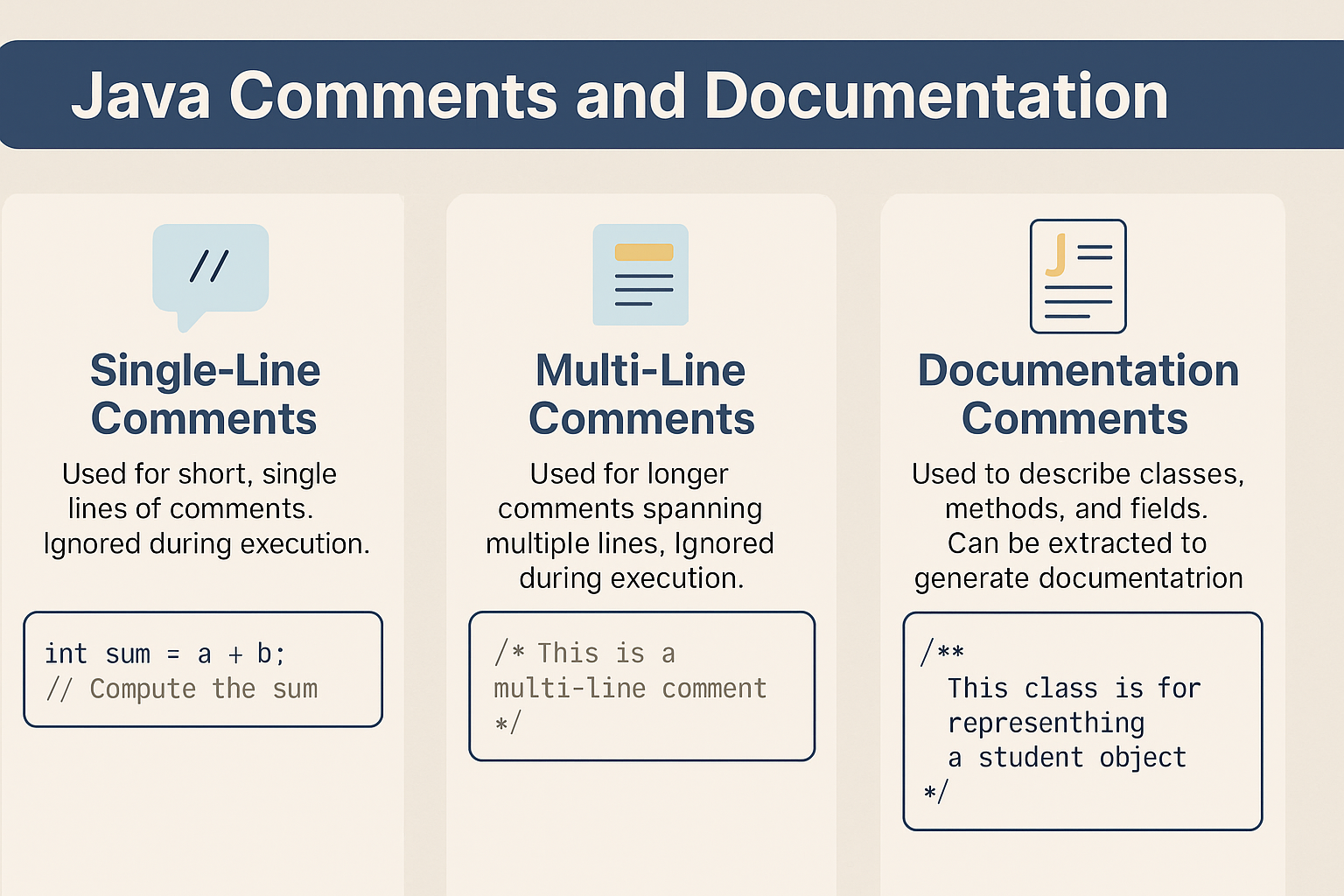
Learn how to use single-line, multi-line, and Javadoc comments in Java. Best practices for clean code and generating documentation.
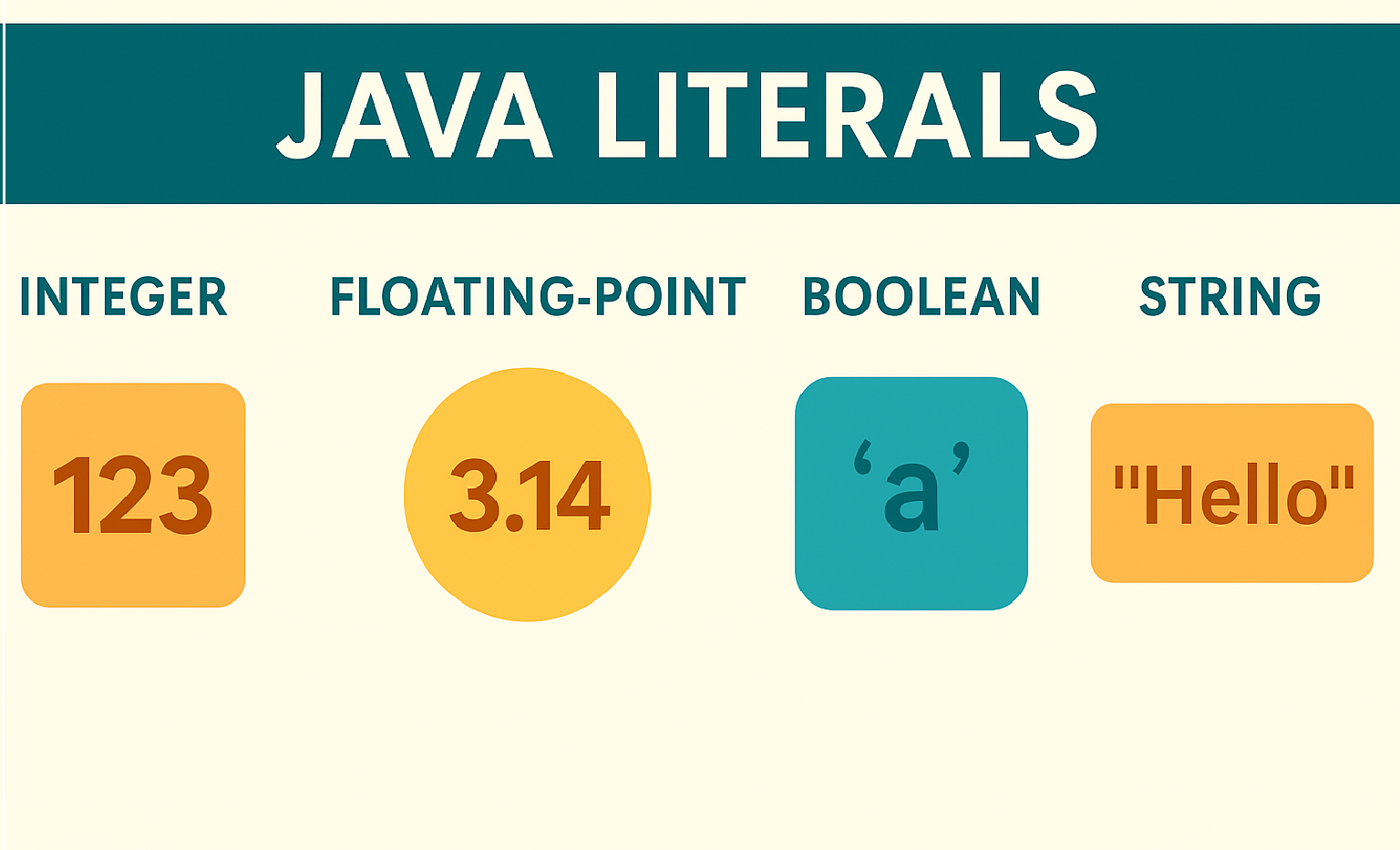
Learn about Java literals including integer, floating-point, boolean, char, and string. Includes examples, use-cases, and best practices for writing clean code.
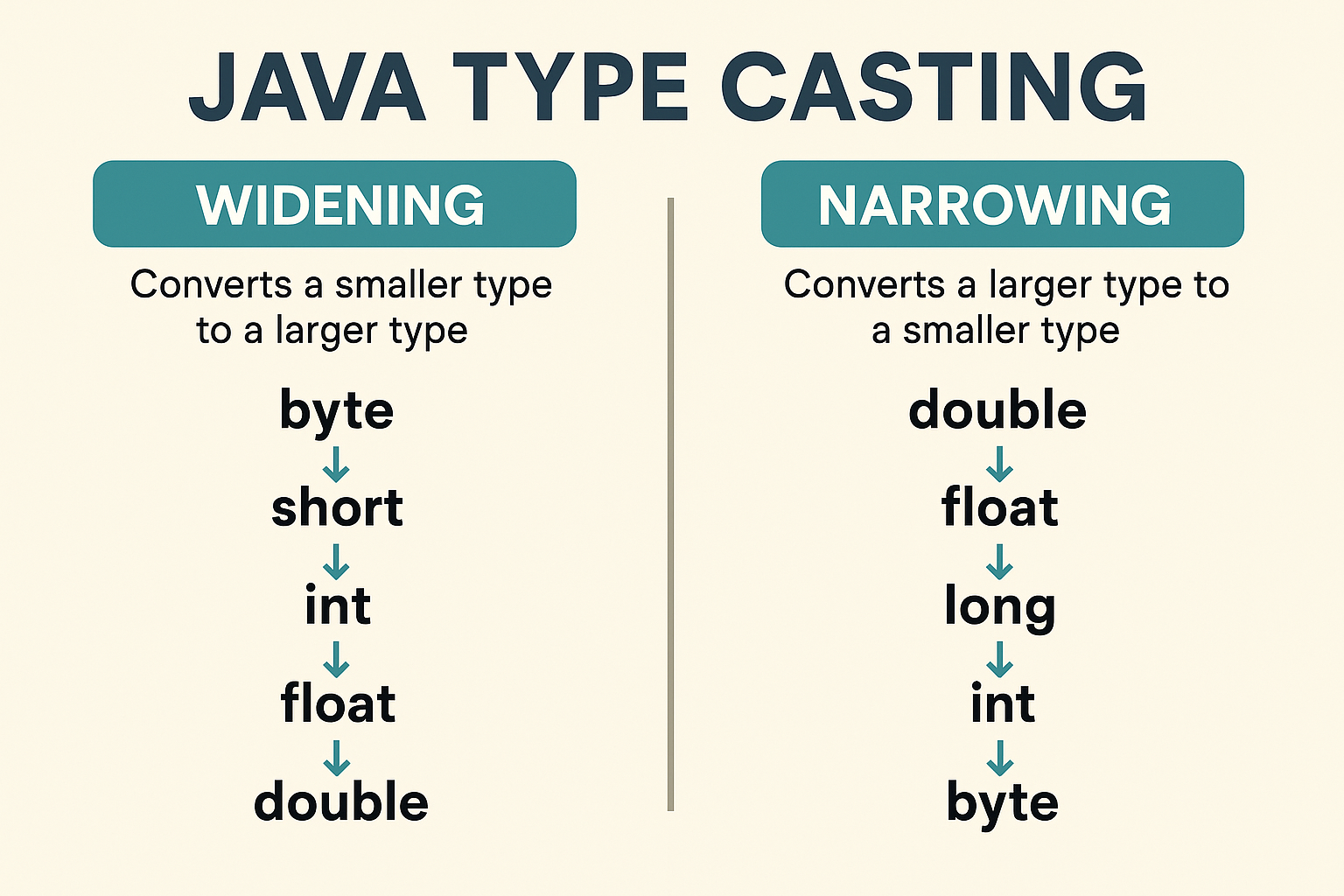
Learn Java type casting and type conversion with detailed examples. Understand widening and narrowing conversions, use-cases, common mistakes, and interview questions
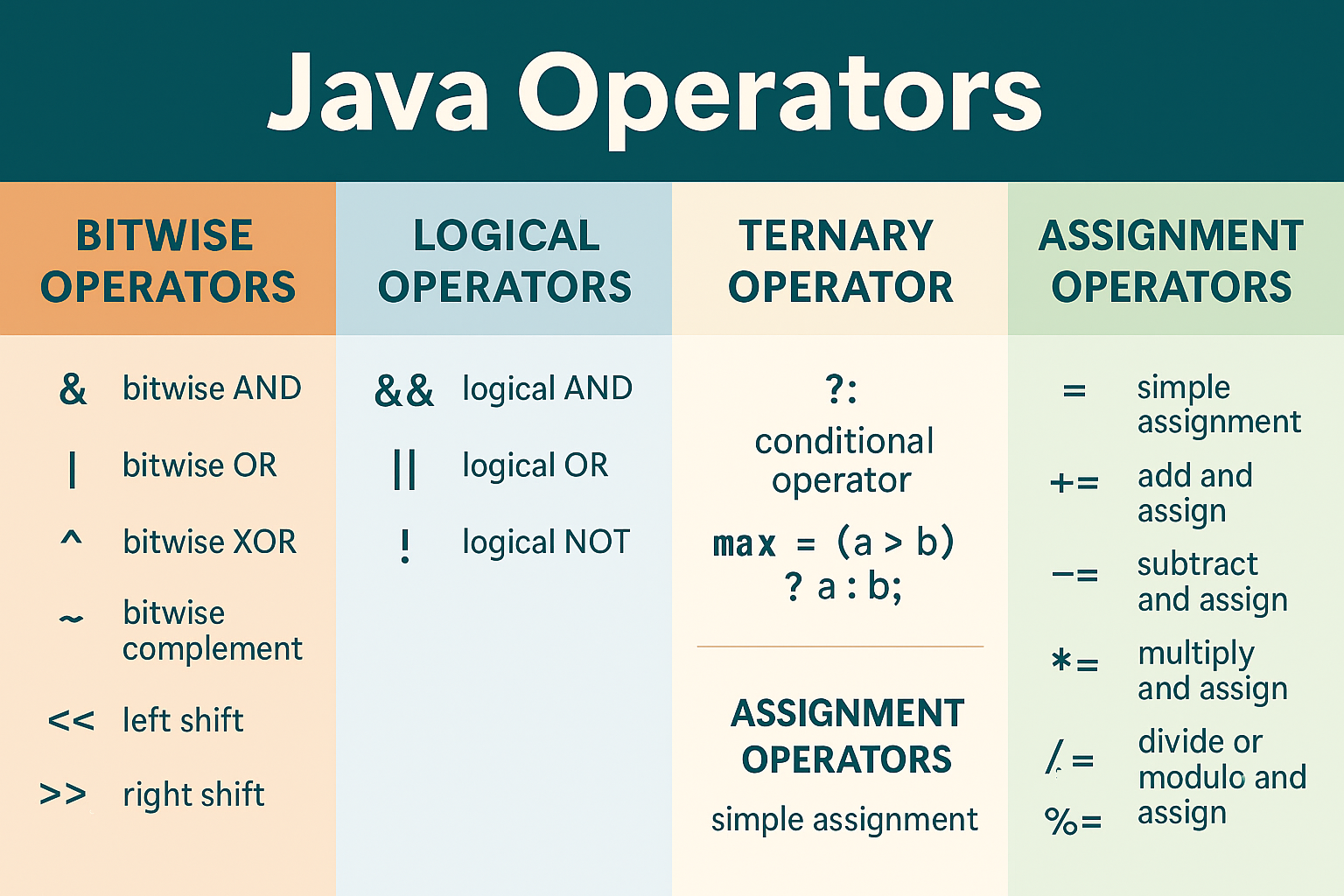
Learn Java bitwise, logical, ternary, and assignment operators in detail with examples, use-cases, performance insights, and interview questions.
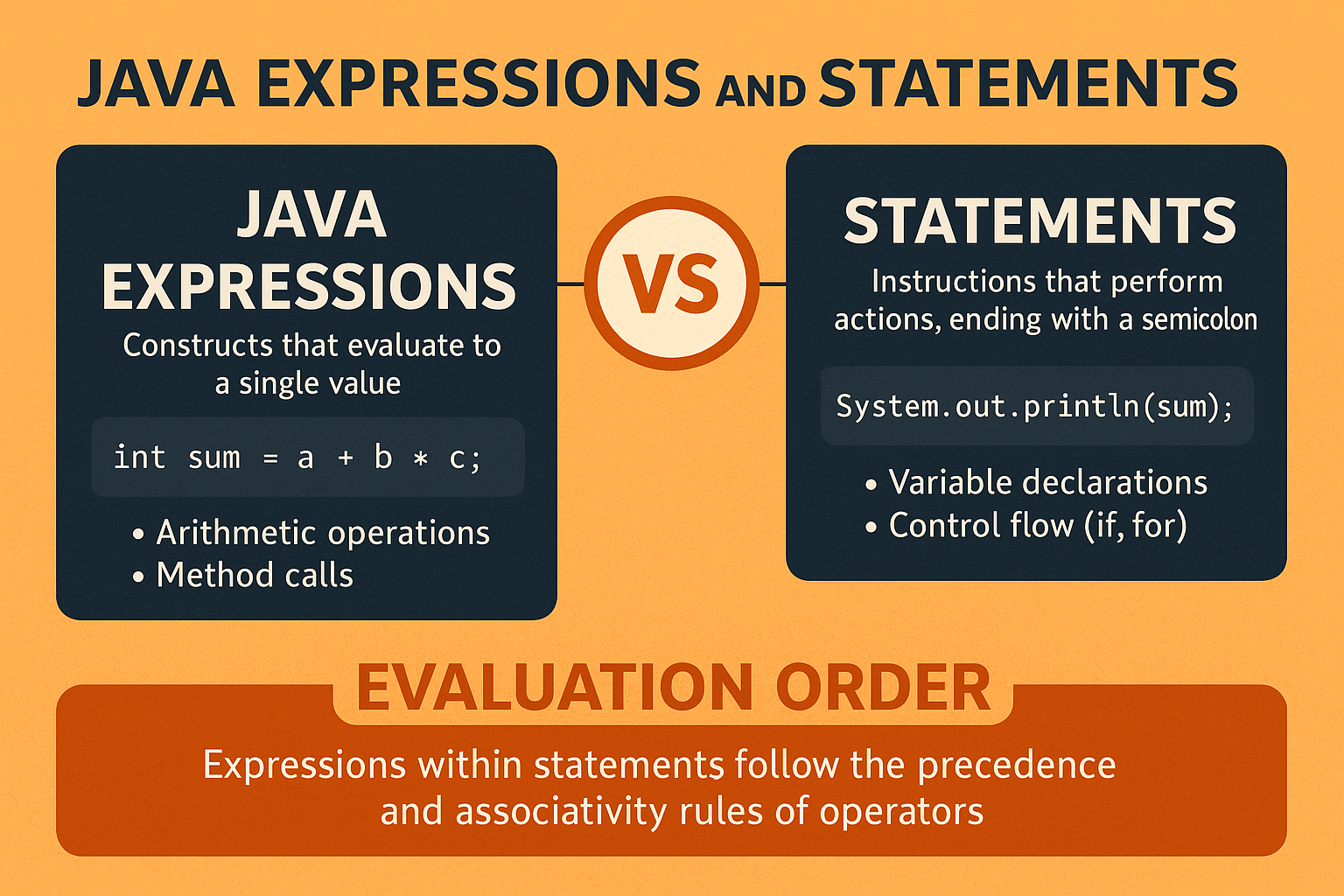
Learn the difference between Java expressions and statements, evaluation order, use-cases, code examples, and interview relevance with best practices.
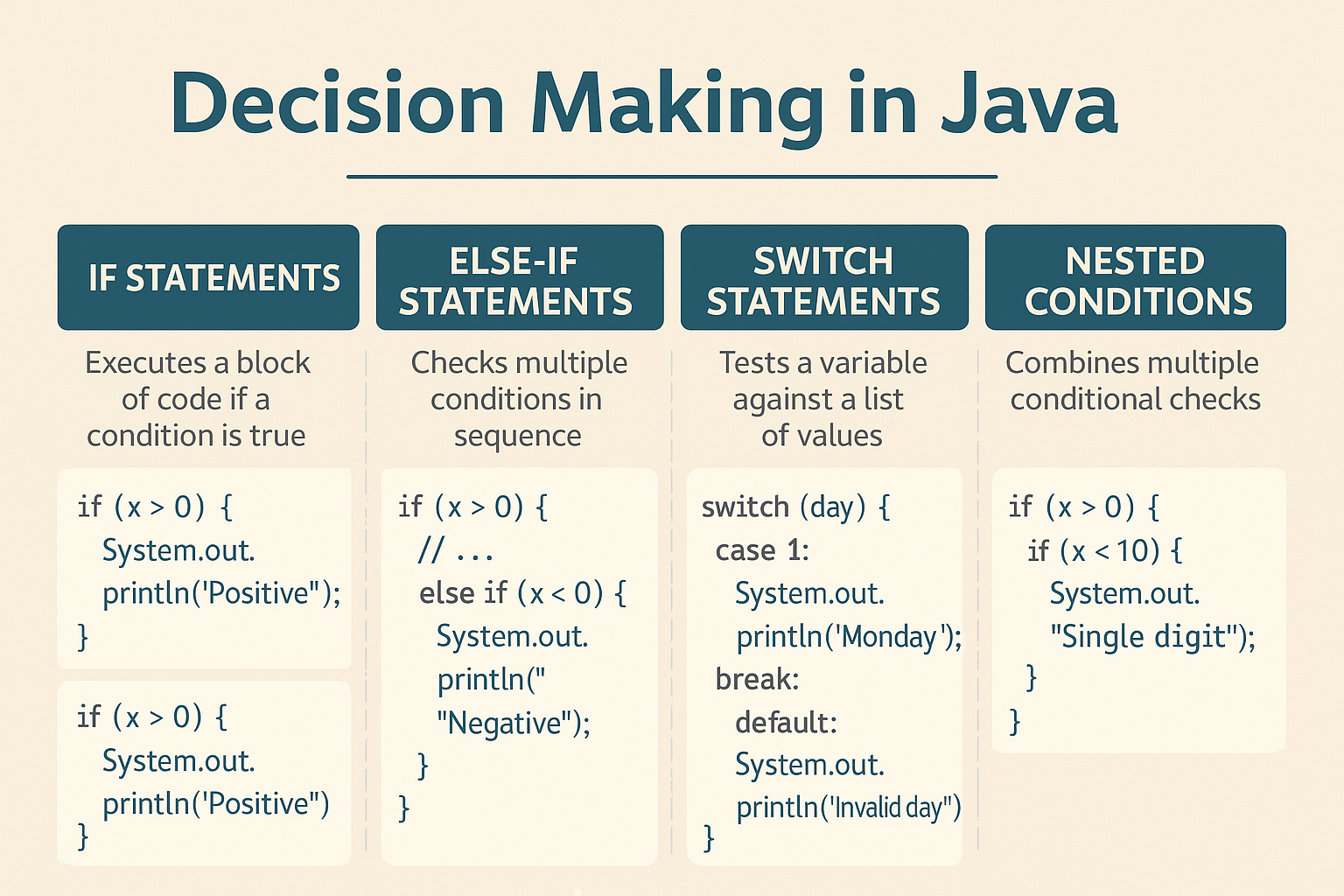
Learn Java decision-making statements like if, else-if, switch, and nested conditions with examples, best practices, and interview questions.
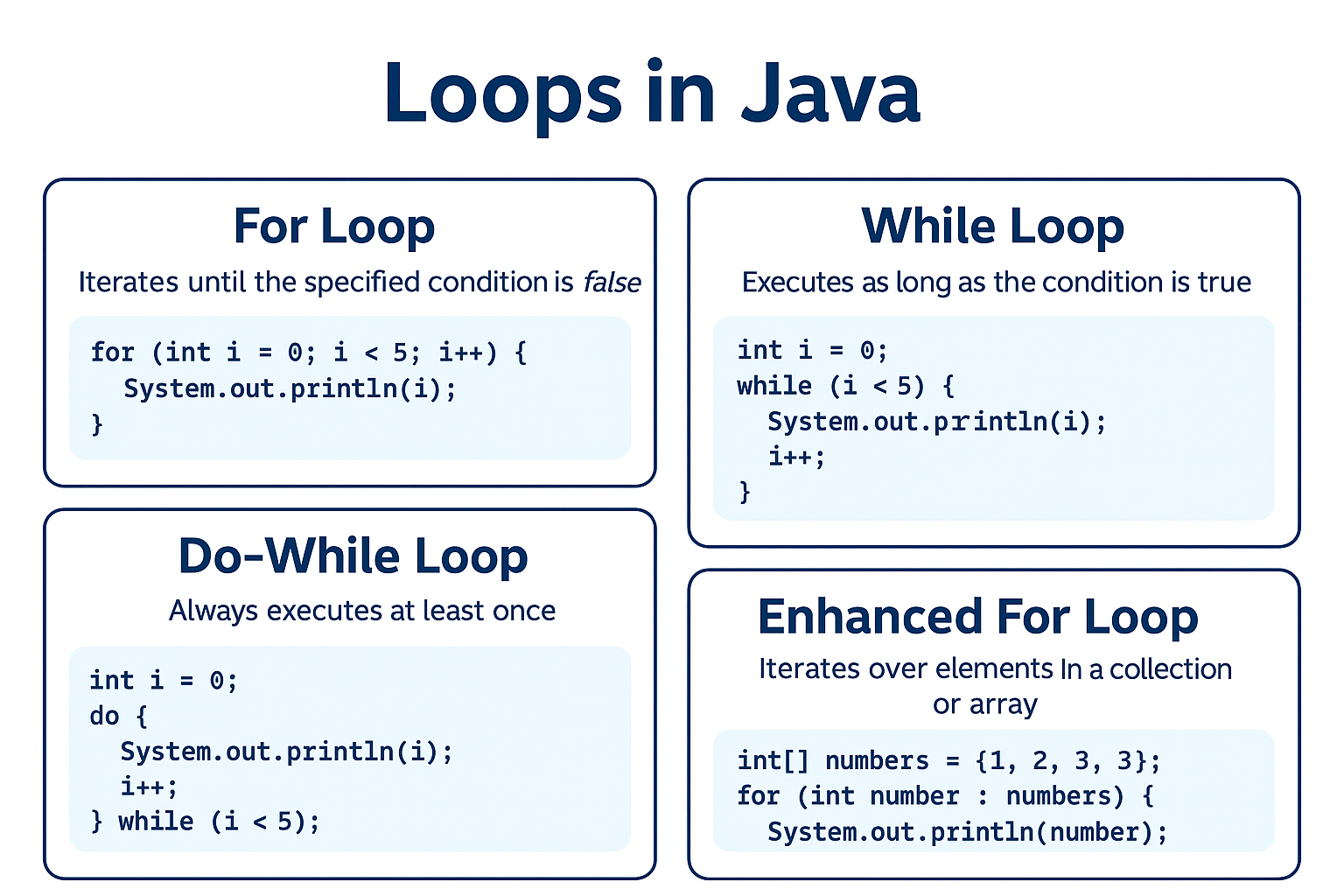
Learn Java loops including for, while, do-while, and enhanced for-loop with syntax, examples, performance tips, and interview questions.
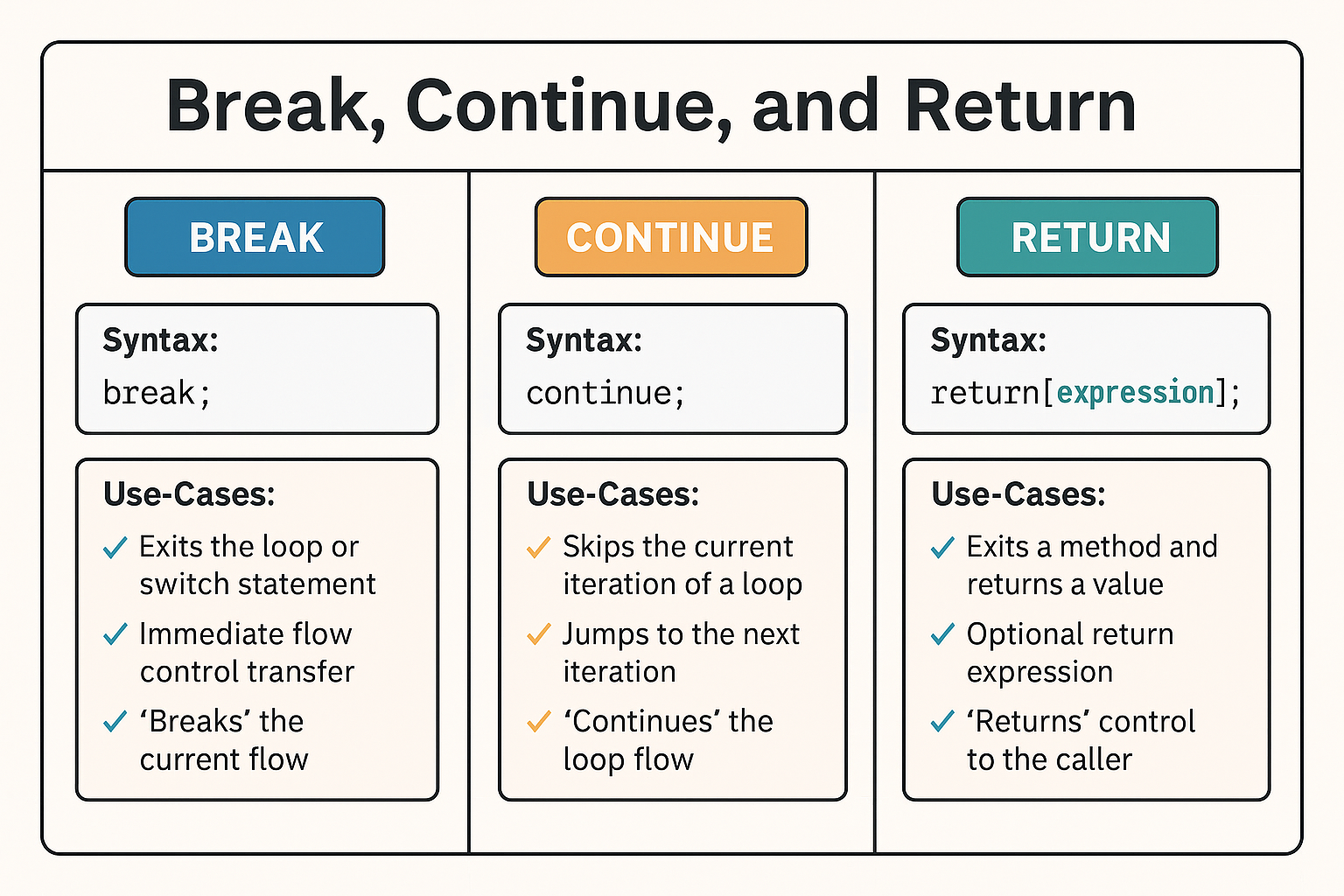
Learn how break, continue, and return statements control Java program flow with detailed examples, use-cases, performance tips, and interview questions
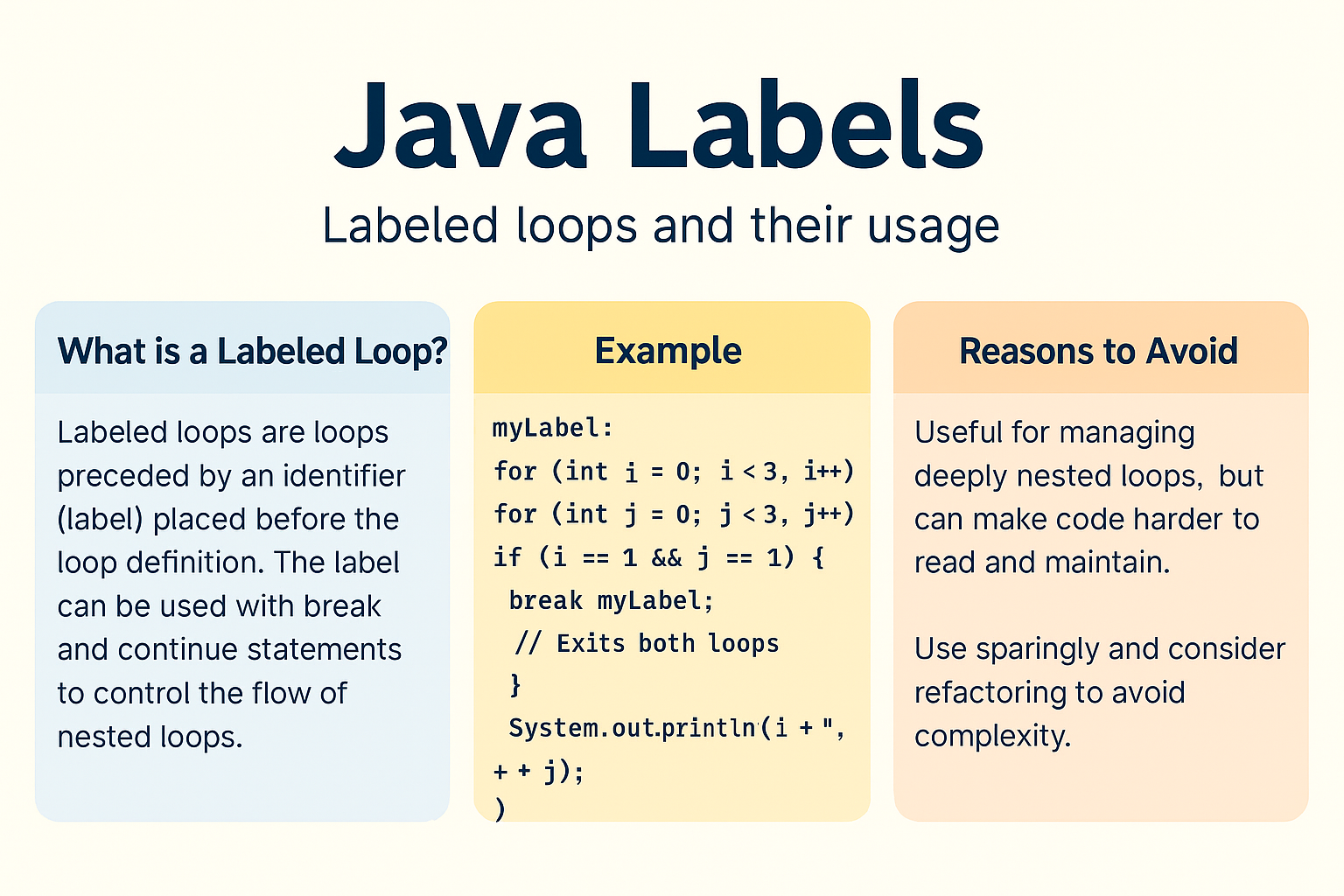
Learn Java labels and labeled loops with examples. Understand how to use labels with break and continue, common mistakes, and best practices
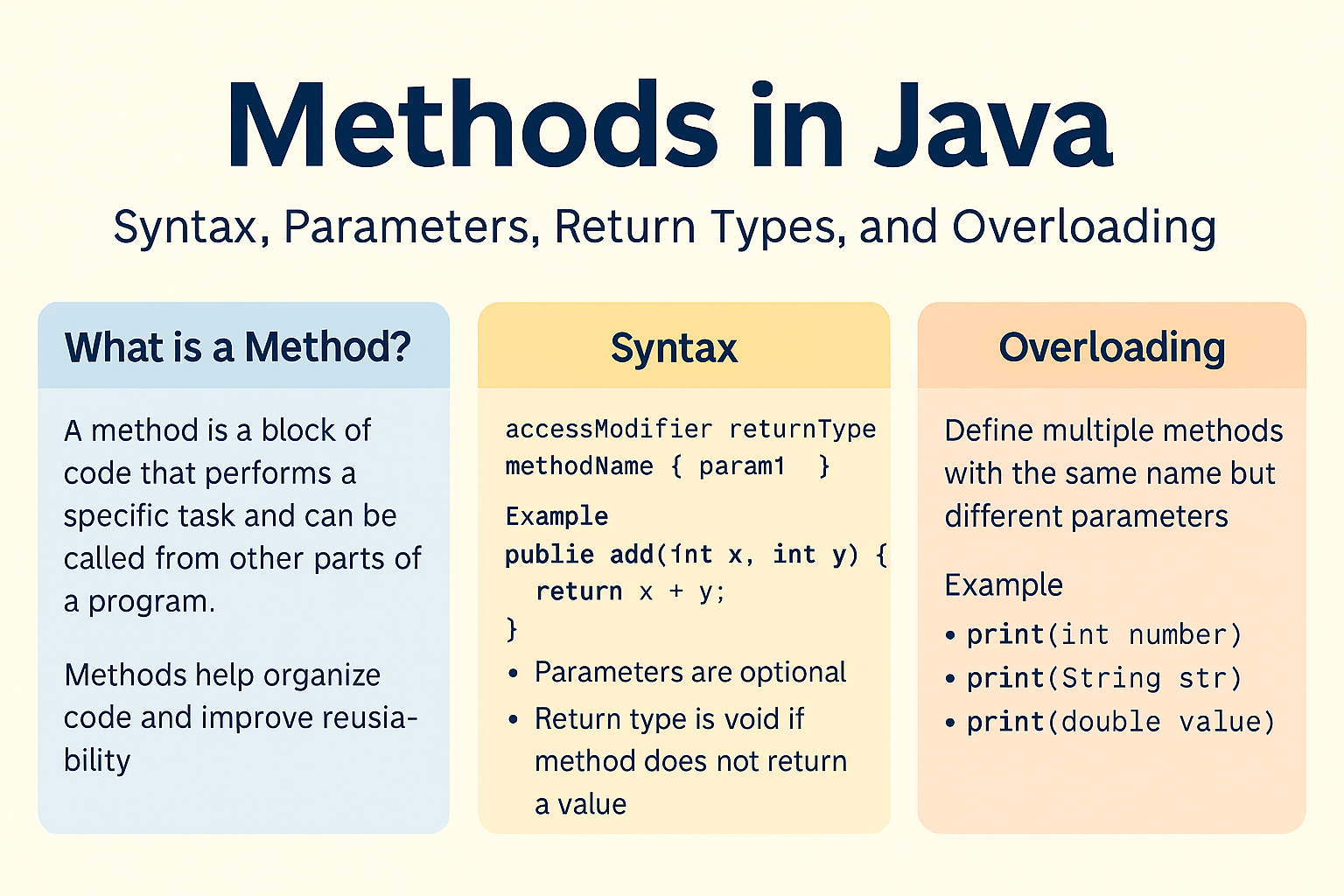
Learn Java methods with detailed syntax, parameter handling, return types, and method overloading. Includes code examples, best practices, and interview tips
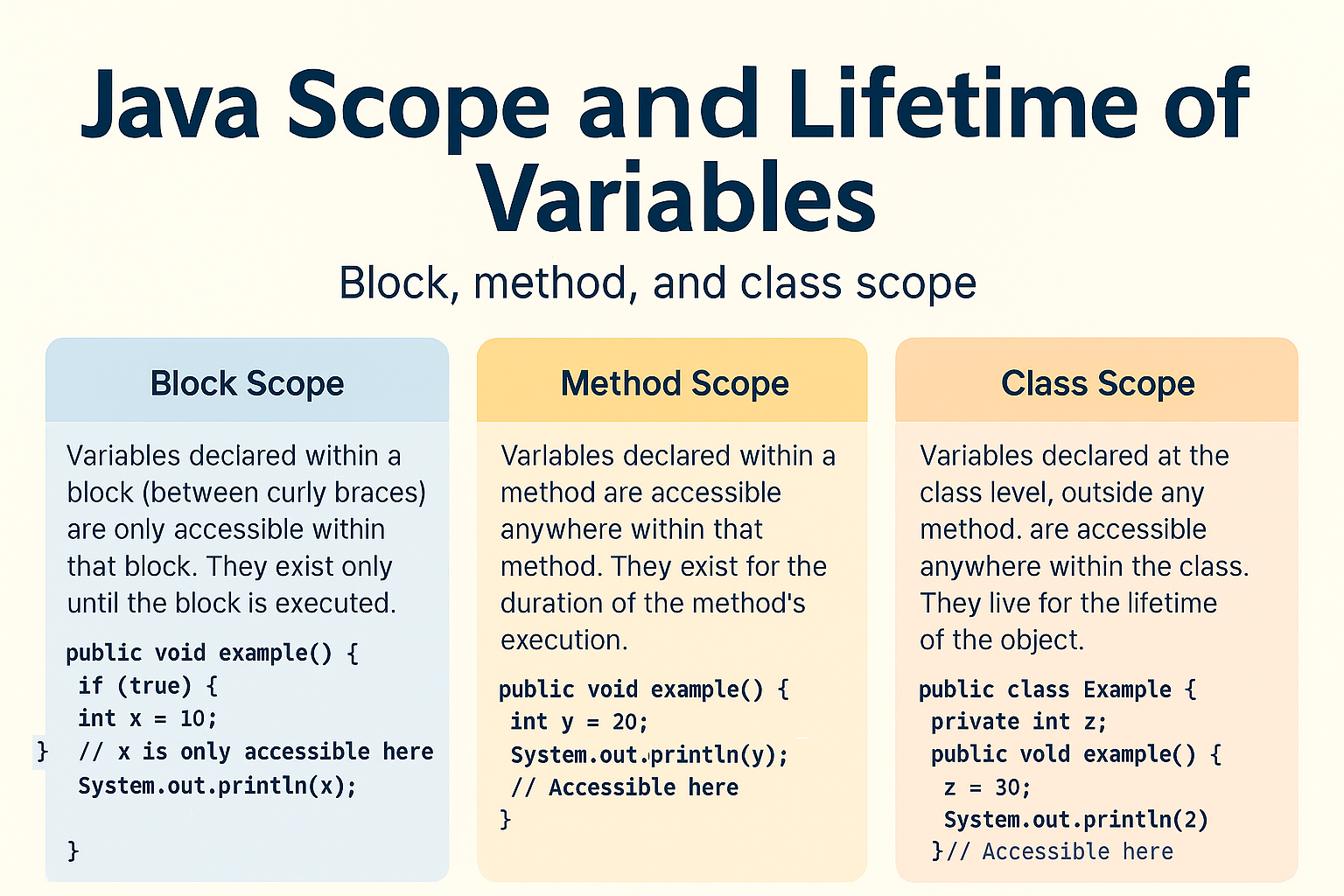
Learn about variable scope and lifetime in Java including block scope, method scope, and class scope with detailed examples, best practices, and interview tips.
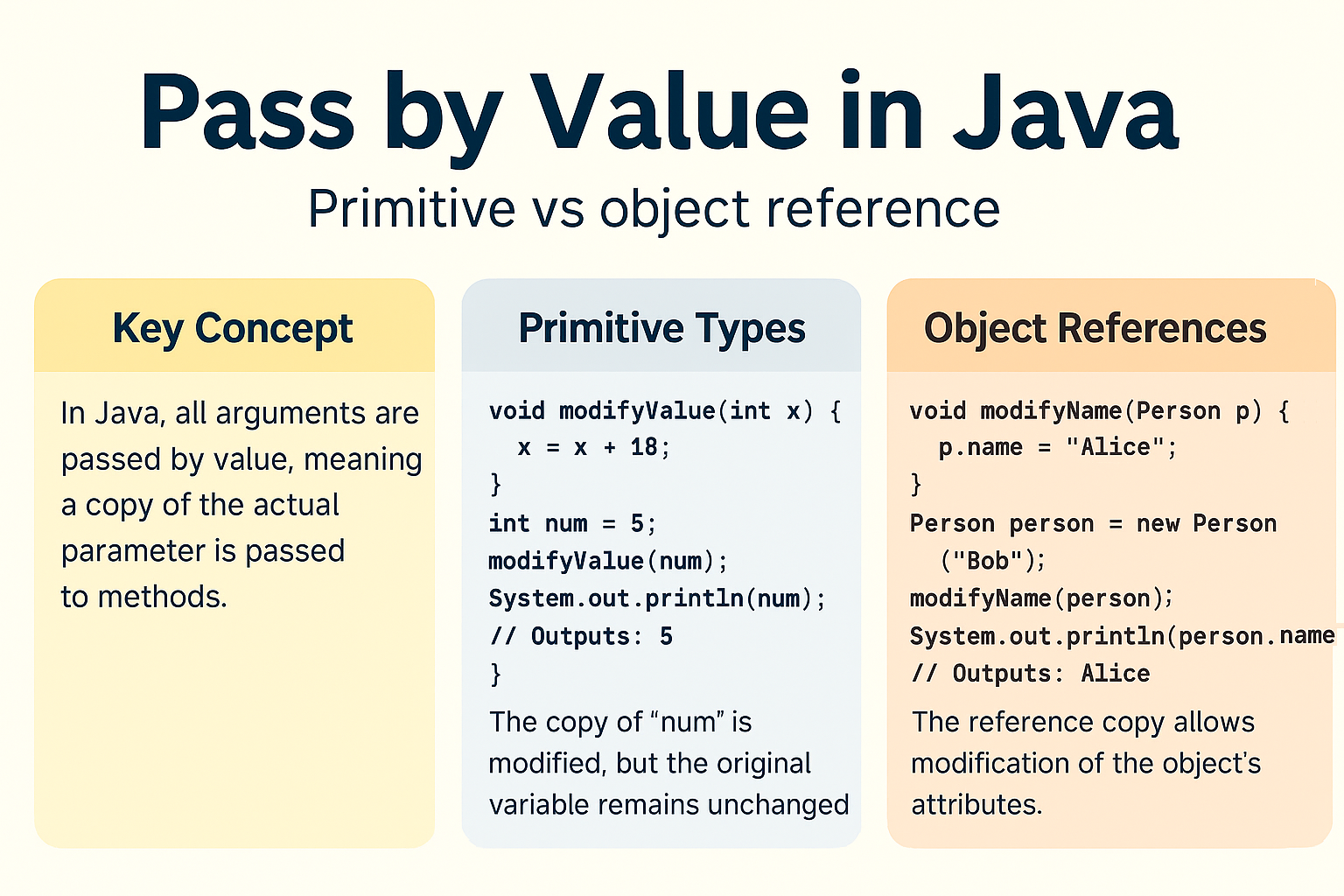
Understand how Java passes variables to methods using pass-by-value, including the difference between primitives and object references, with examples and best practices.
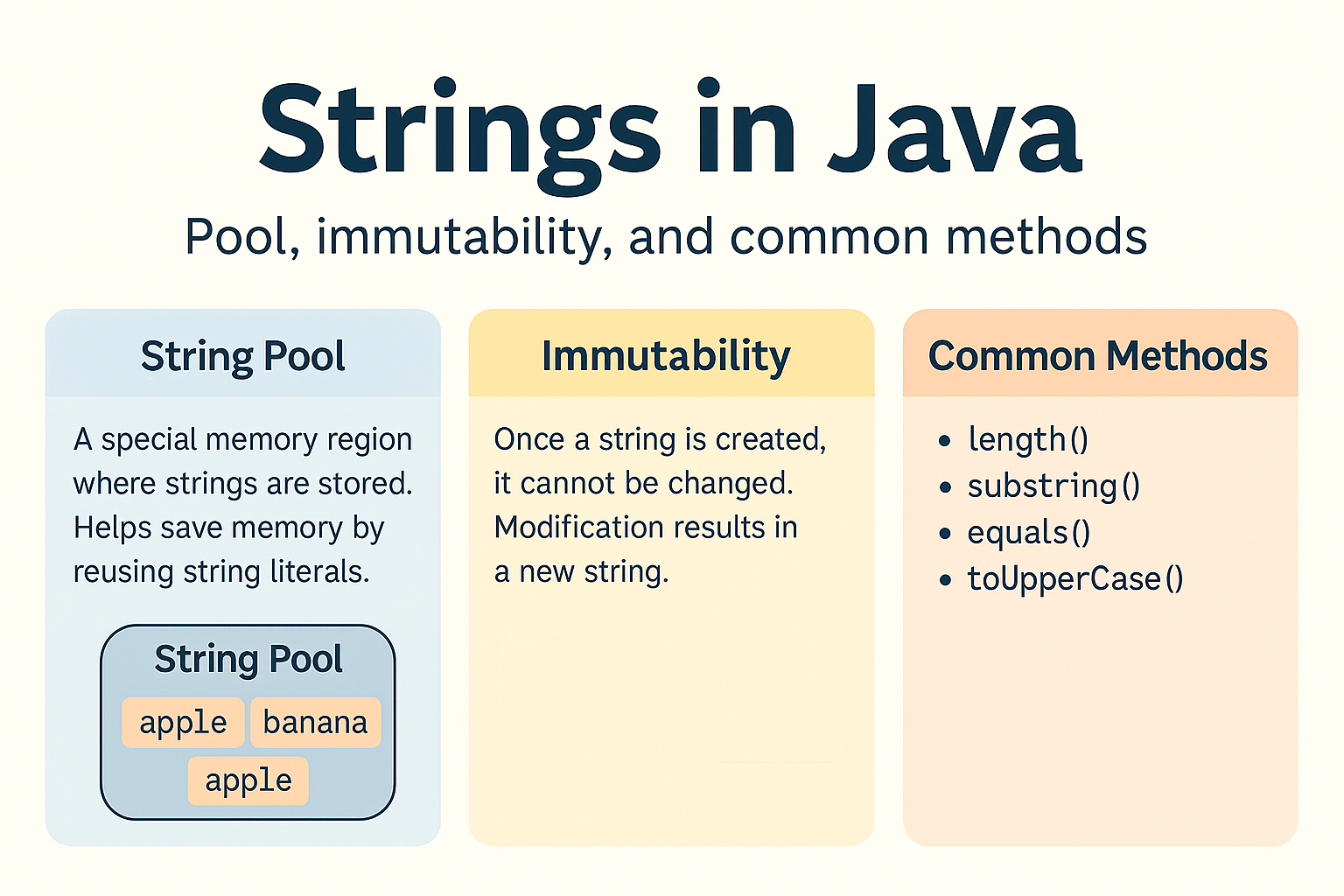
Learn about Strings in Java, the concept of String Pool, why Strings are immutable, and the most commonly used String methods with practical examples
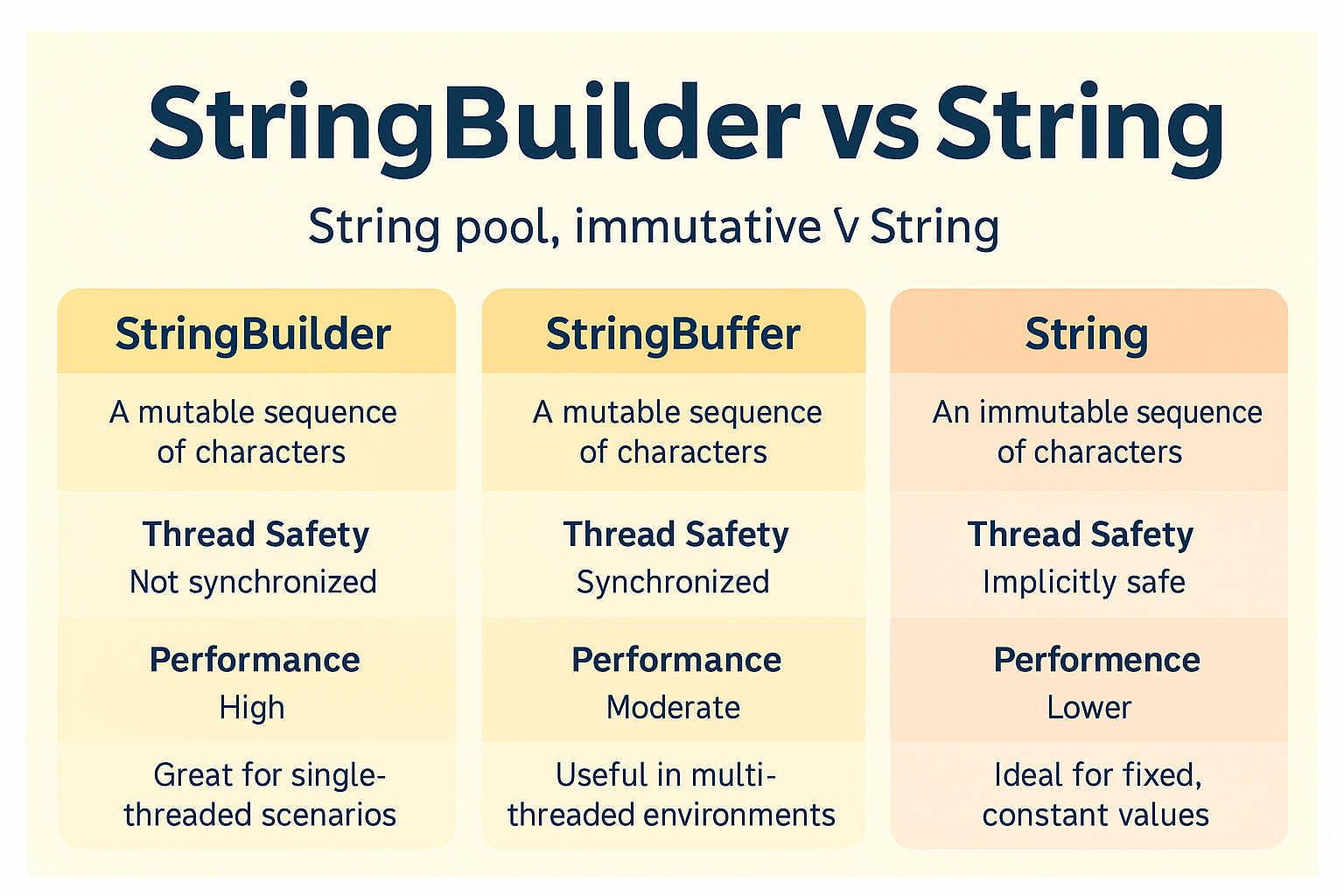
Understand the differences between String, StringBuilder, and StringBuffer in Java. Learn their performance, immutability, thread-safety, and ideal use-cases with examples
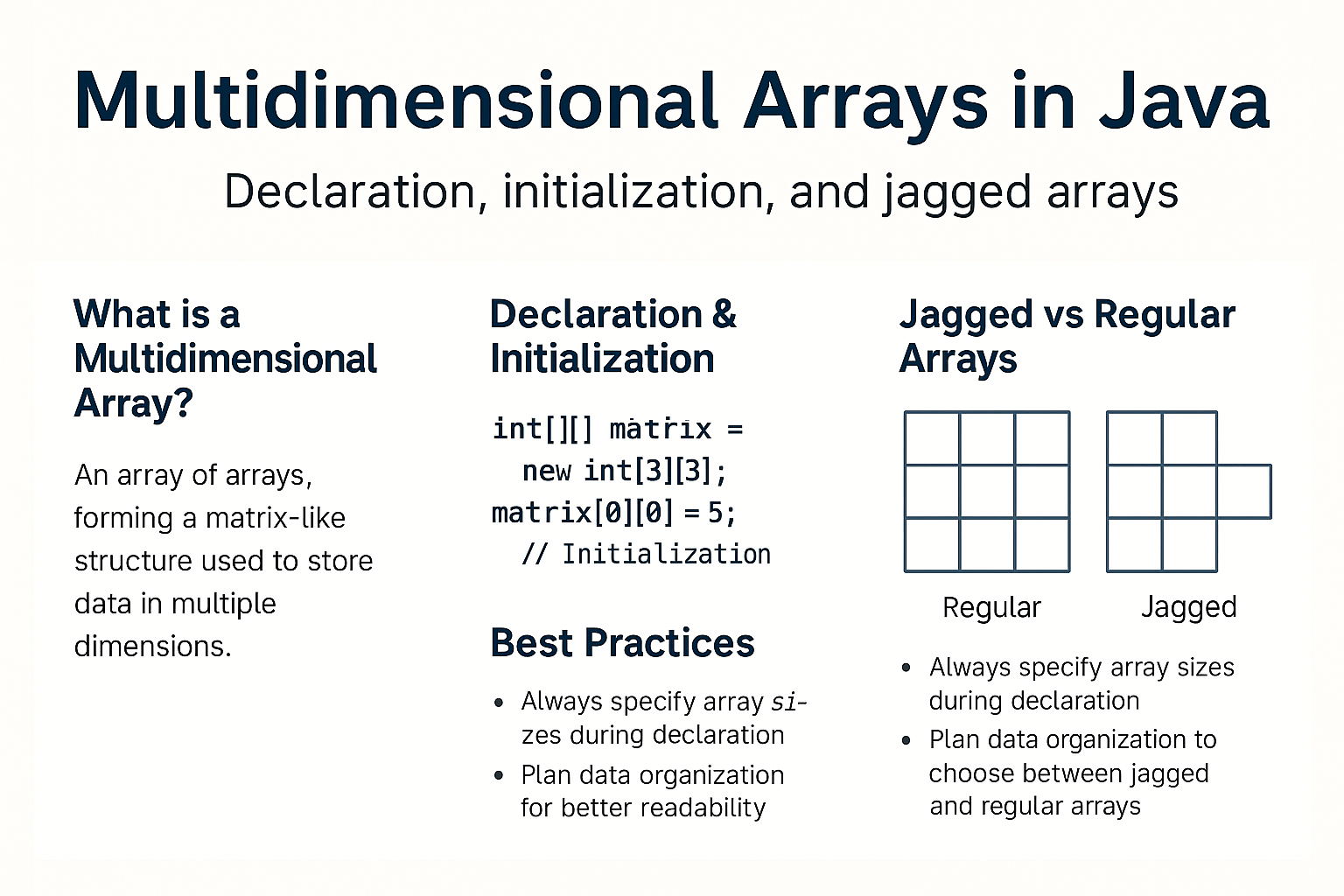
Learn Java multidimensional arrays with examples. Covers declaration, initialization, jagged arrays, memory implications, and best practices for efficient coding.
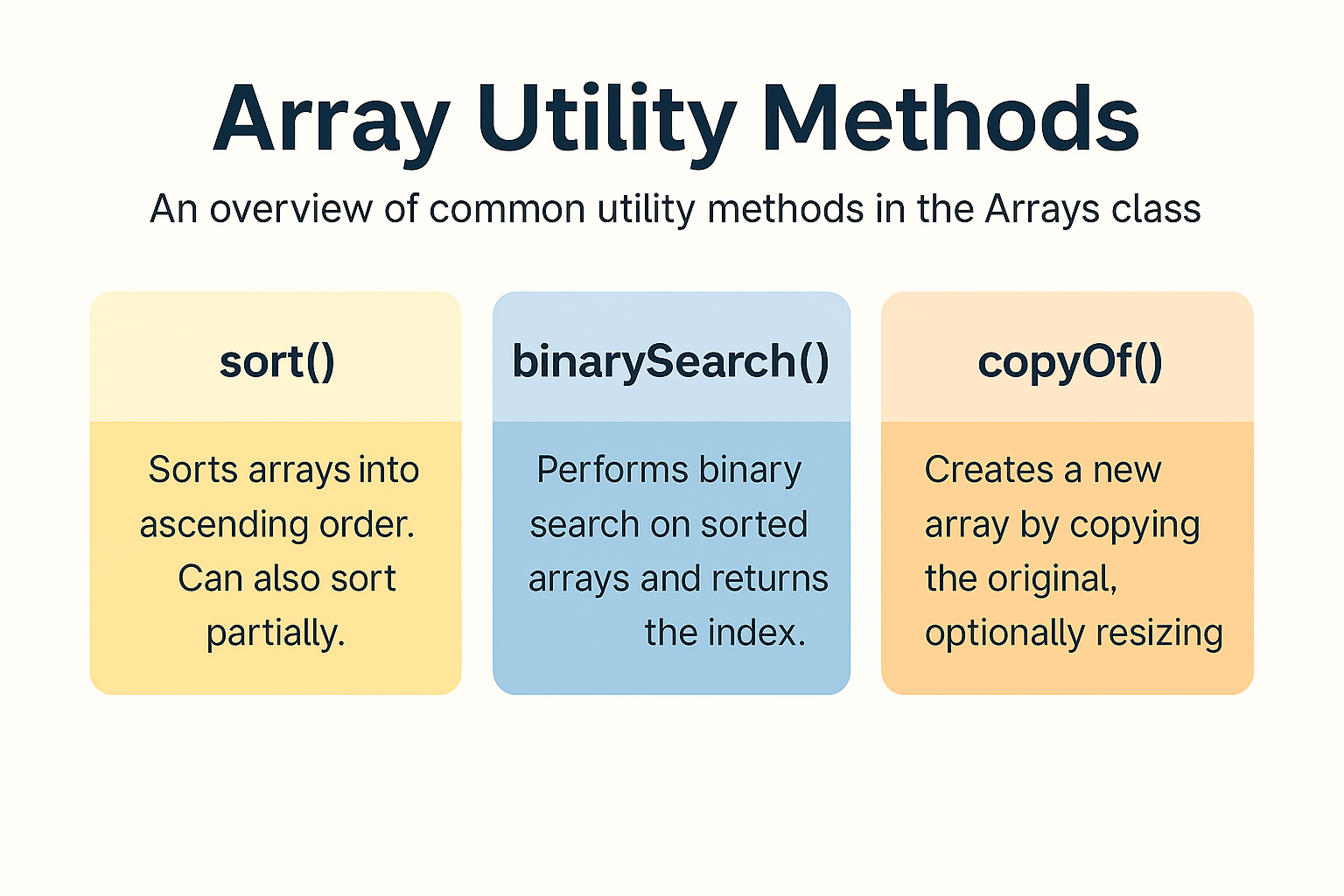
Learn Java Arrays utility methods in depth including sort(), binarySearch(), copyOf(), equals(), fill() and more with examples, use-cases, and best practices.
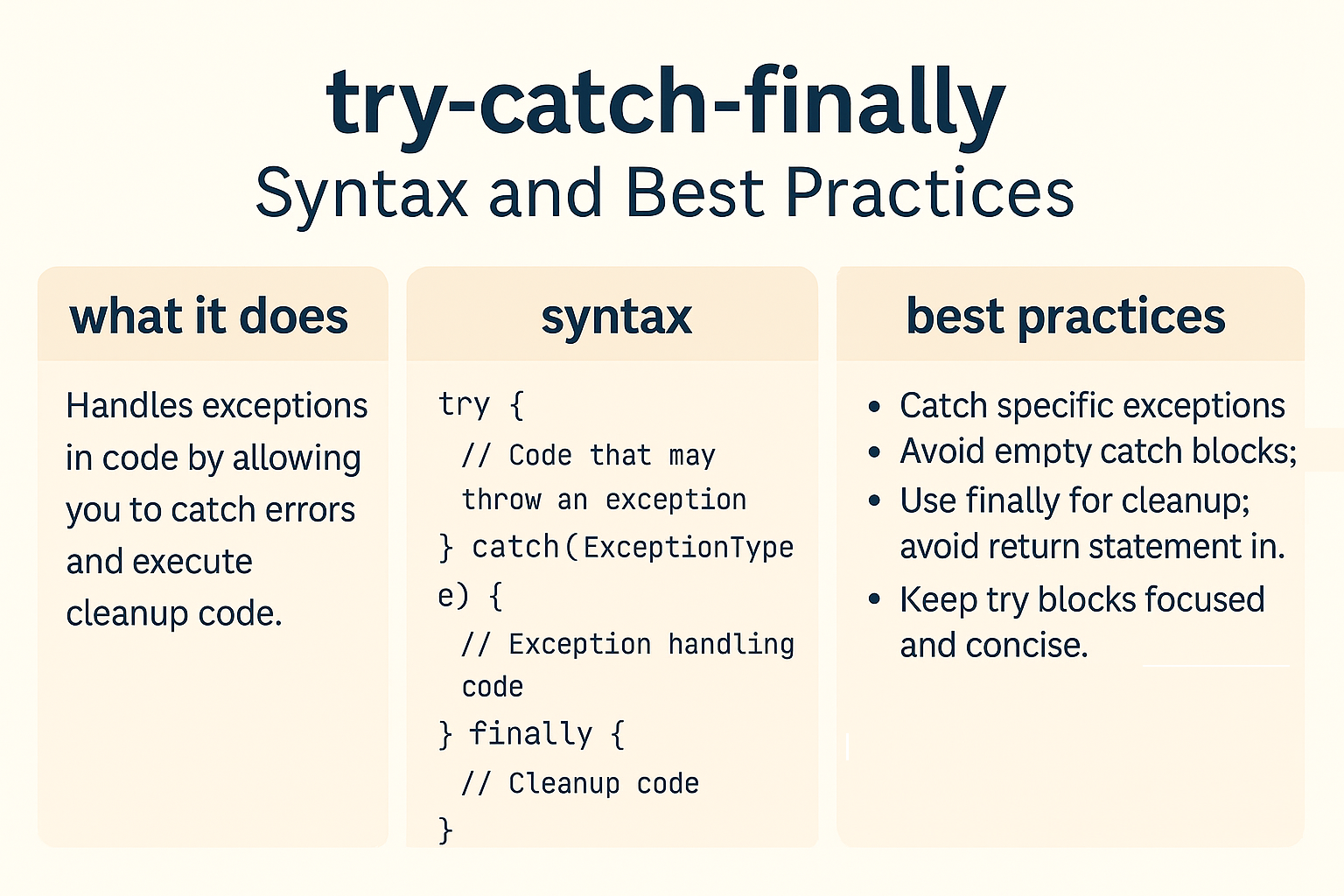
Learn Java exceptions in depth. Understand checked vs unchecked exceptions with real-world examples, performance tips, and best practices for robust code
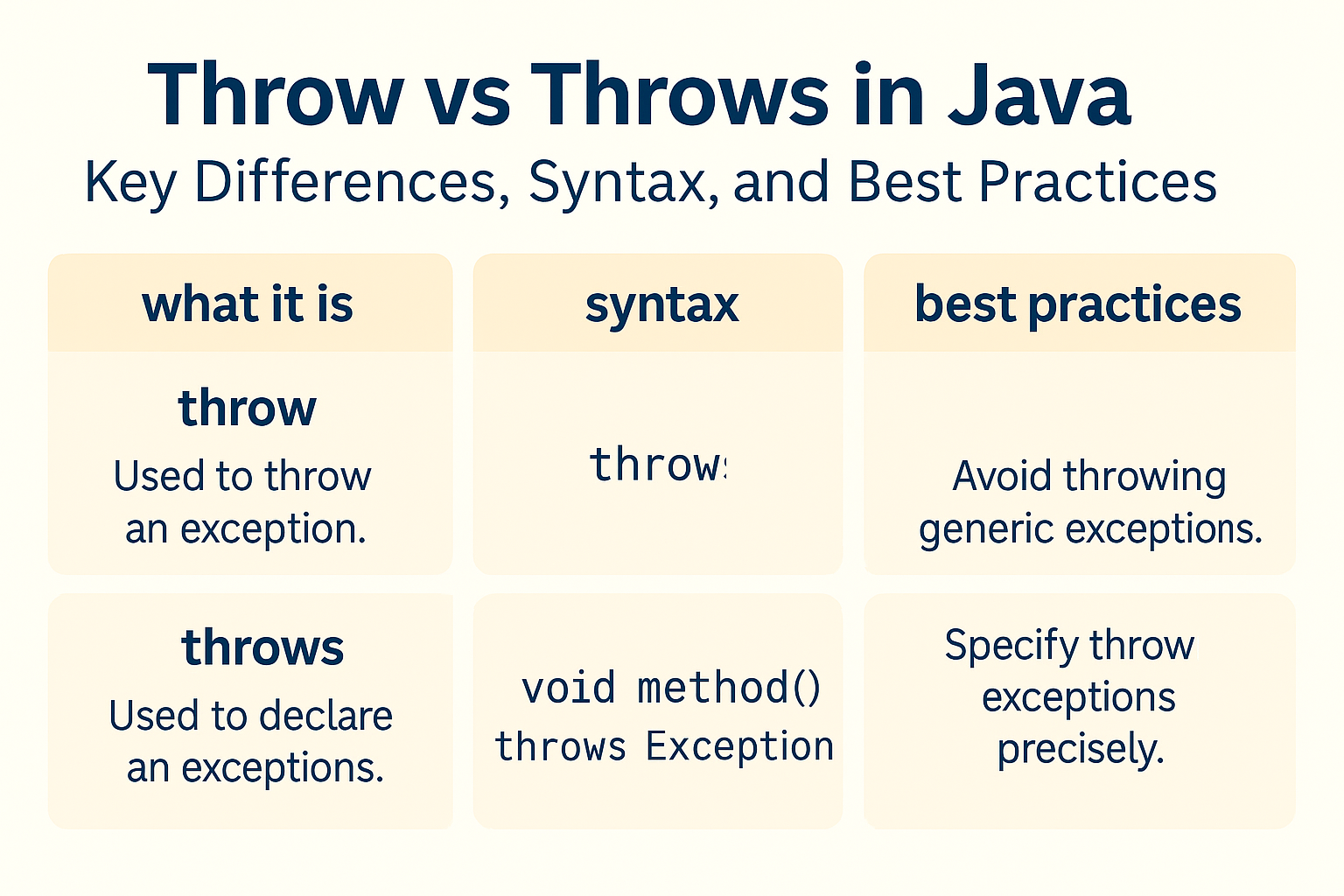
Learn the key differences between `throw` and `throws` in Java with syntax, examples, performance implications, and best practices for exception handling.
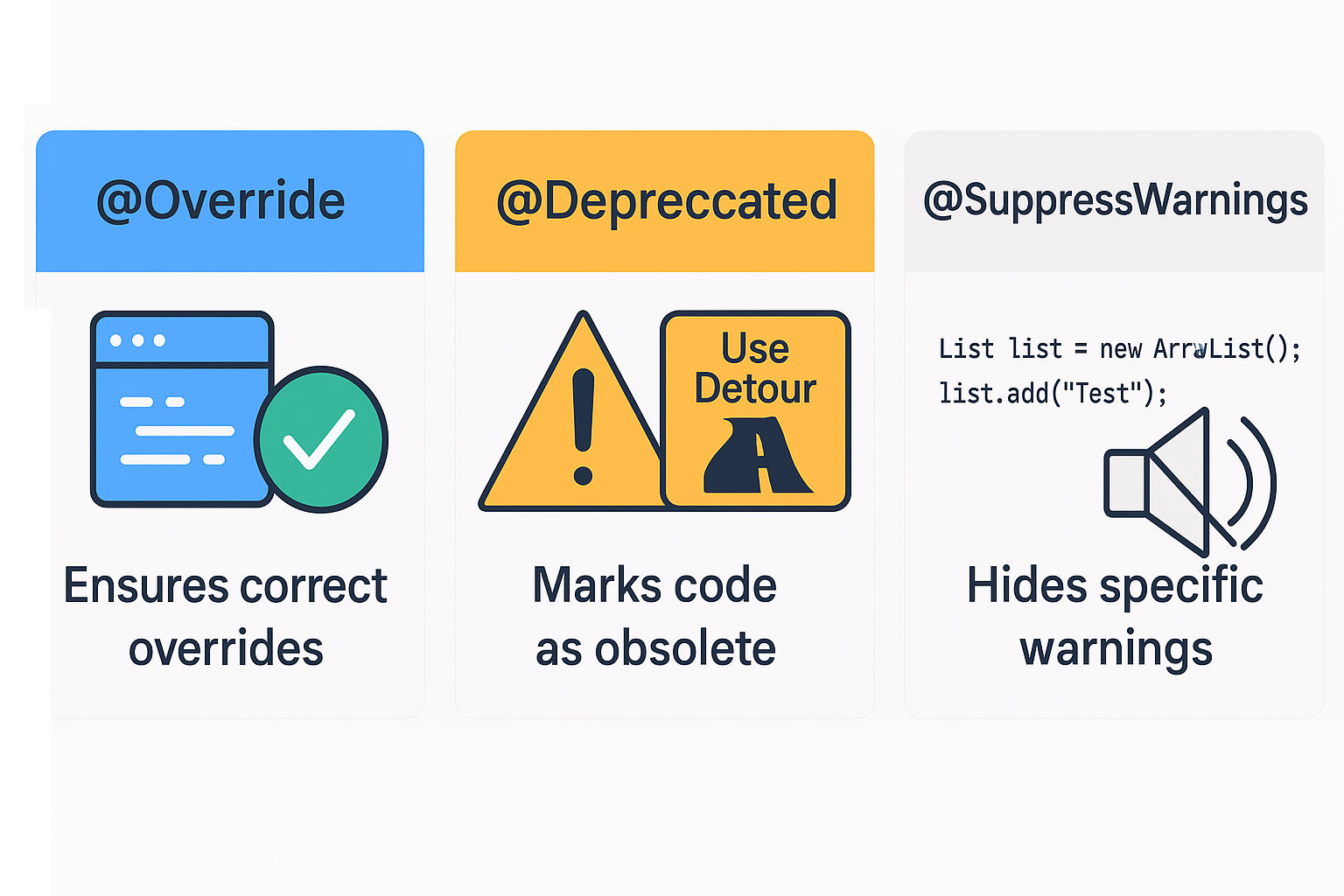
Learn Java annotations @Override, @Deprecated, and @SuppressWarnings with examples, use cases, best practices, and interview questions in this complete guide

Learn Java assertions with syntax, usage, best practices, and when to enable them. Includes real-world examples, interview questions, and performance insights.

Learn everything about Java packages, how to create them, import classes, and organize code effectively. Includes syntax, examples, and best practices